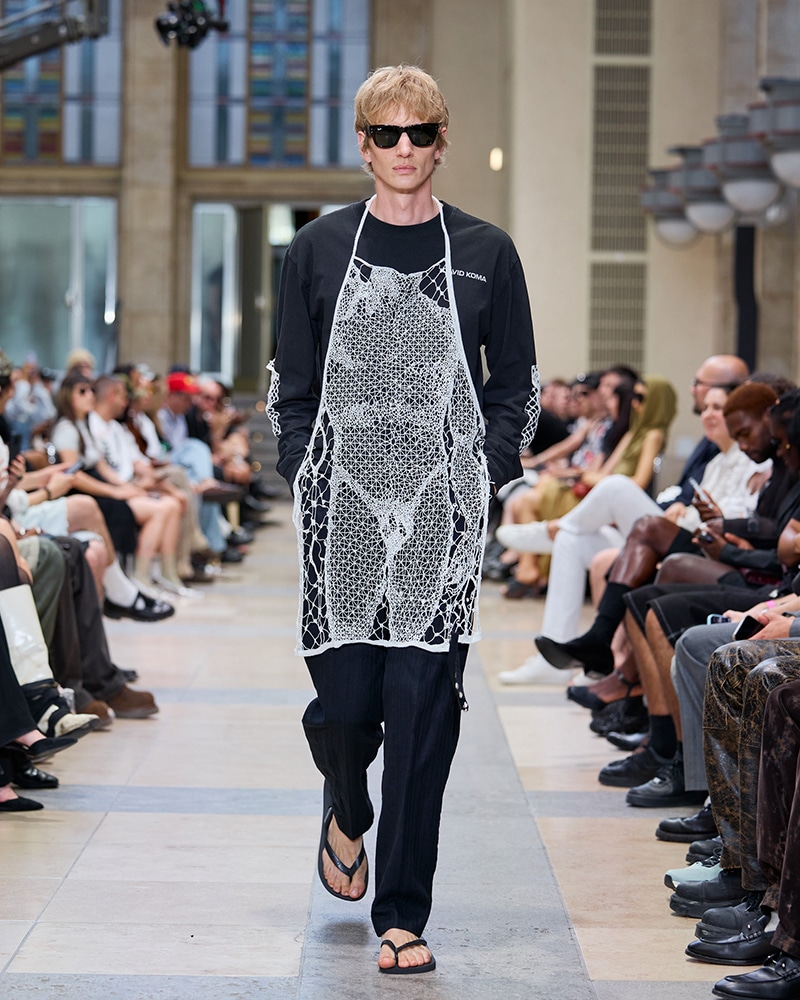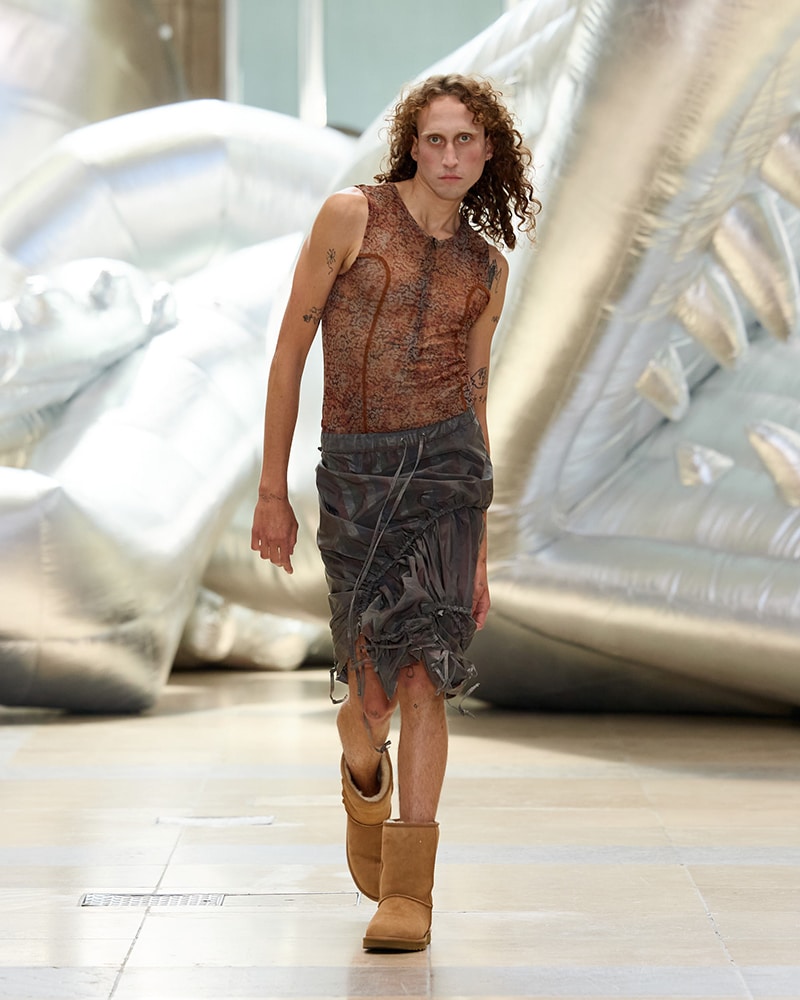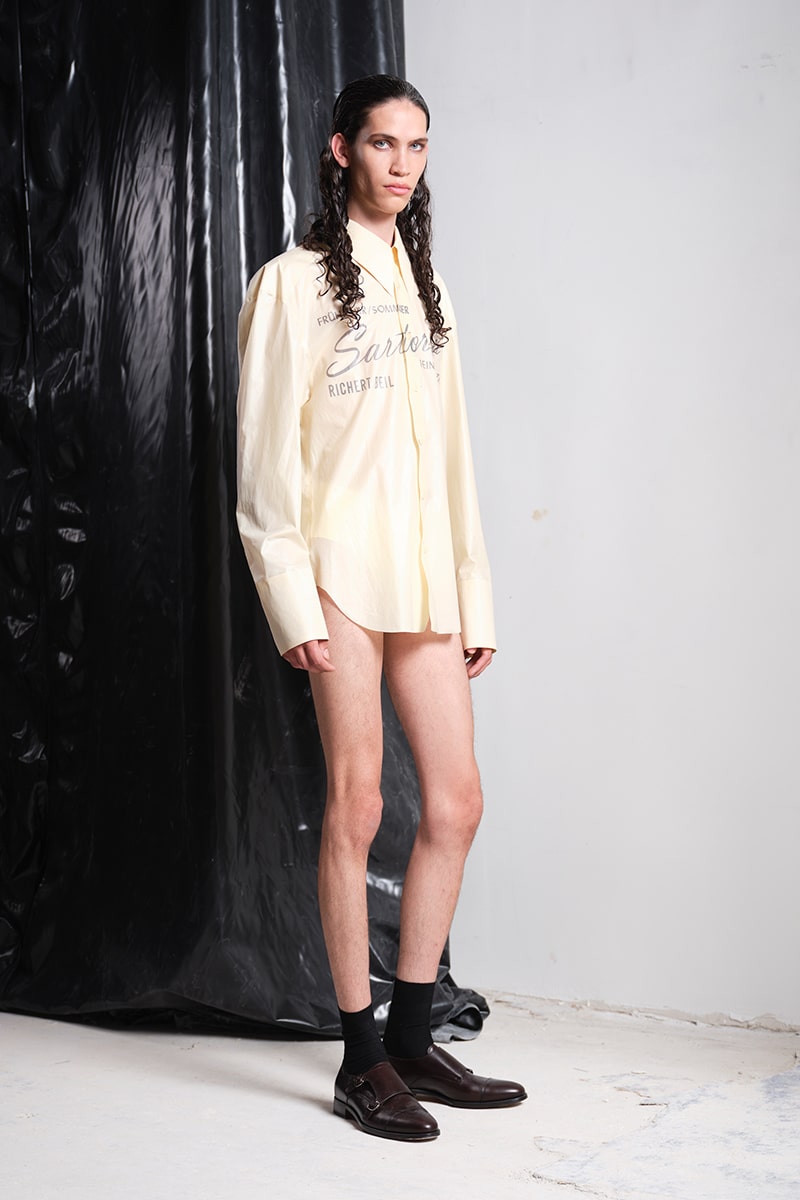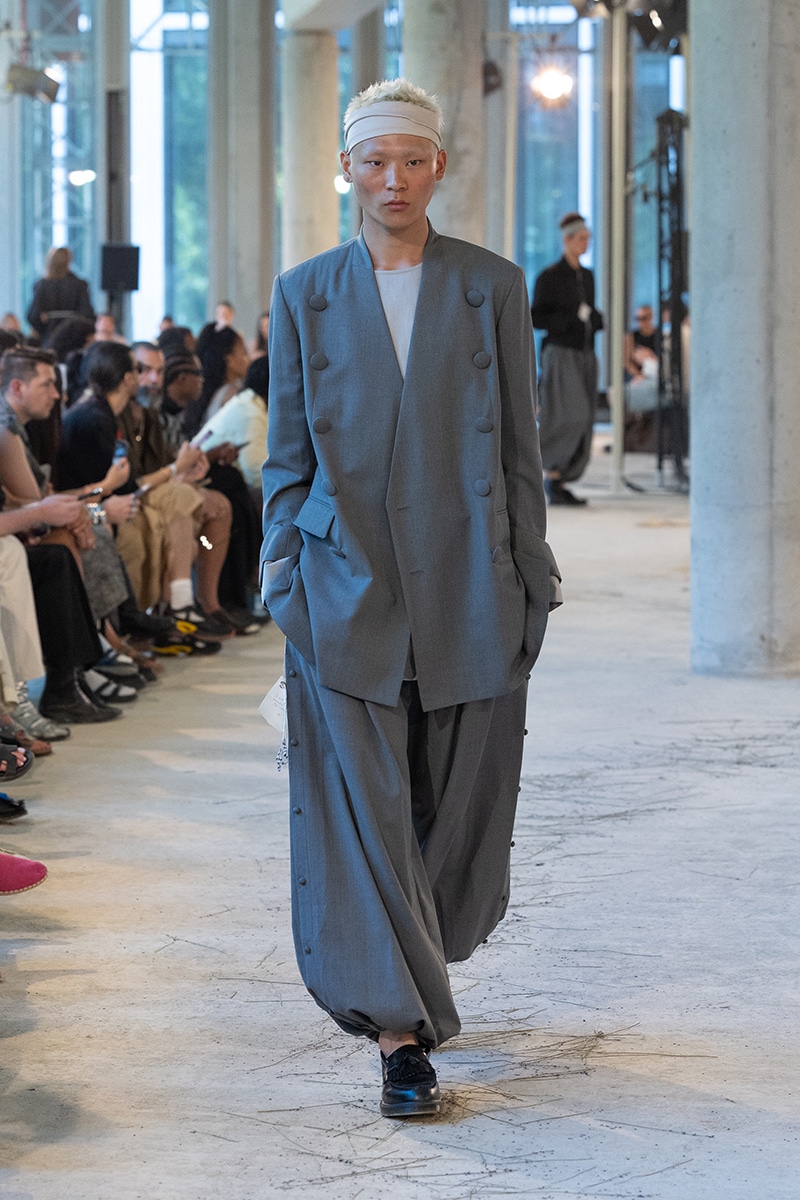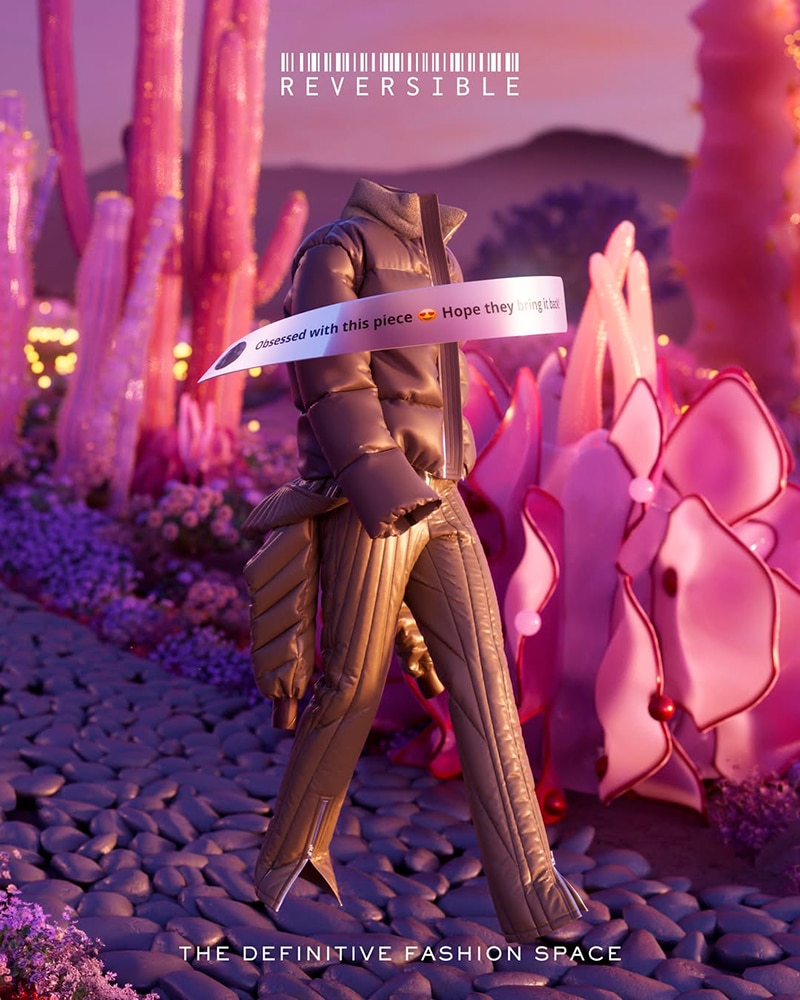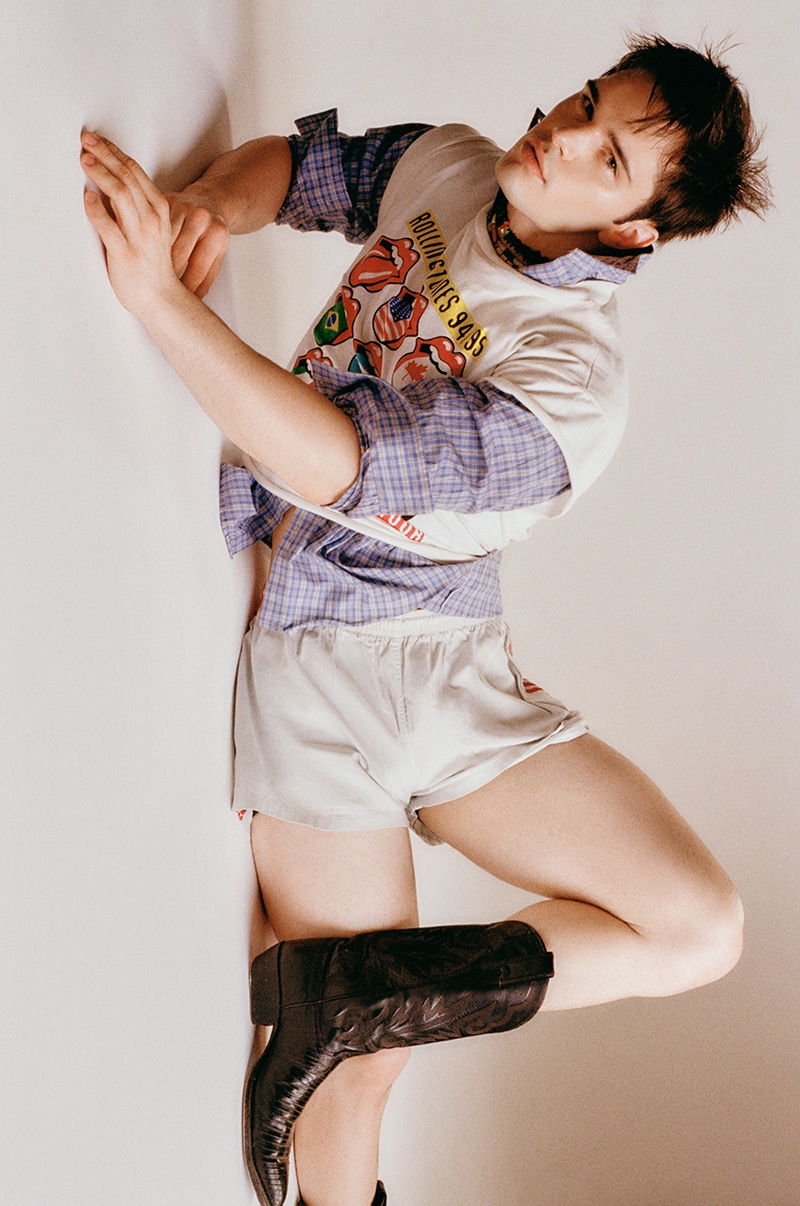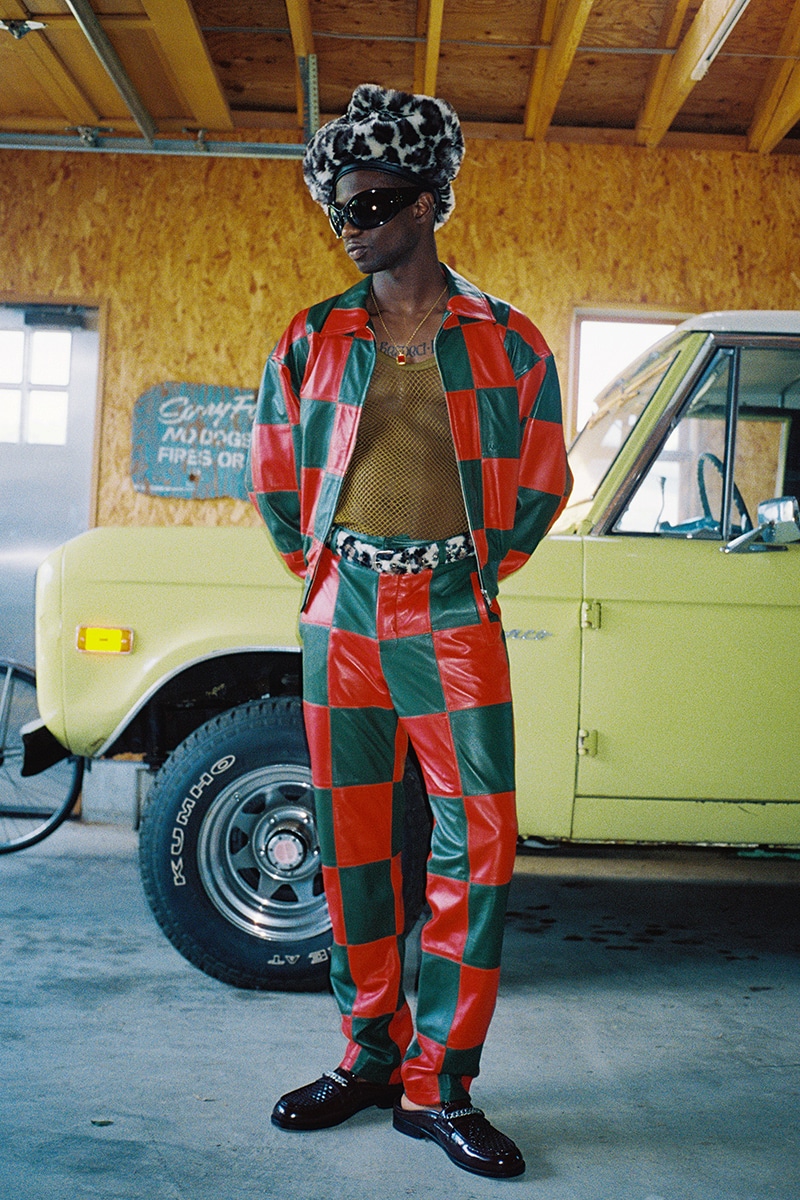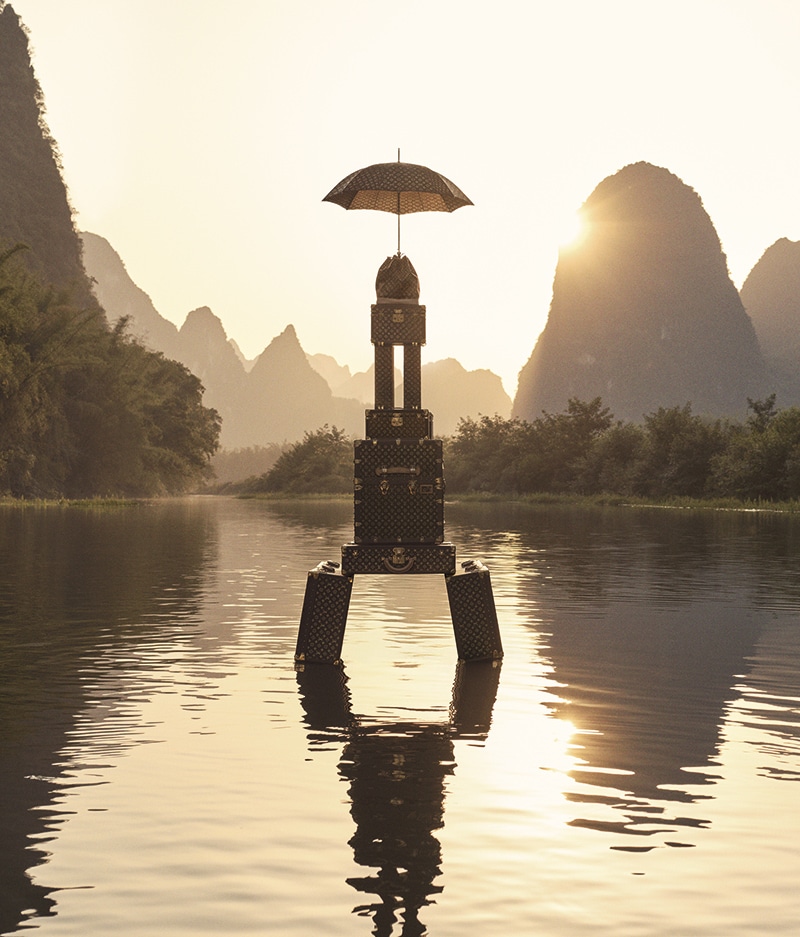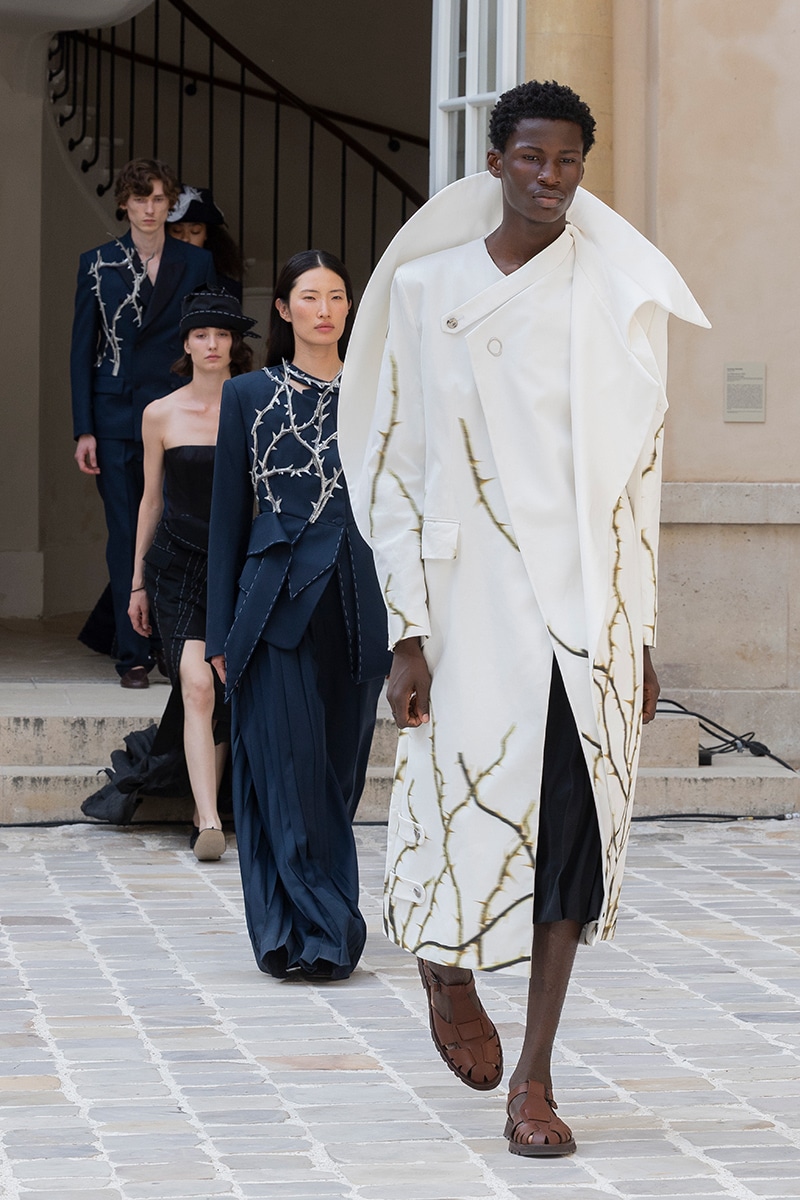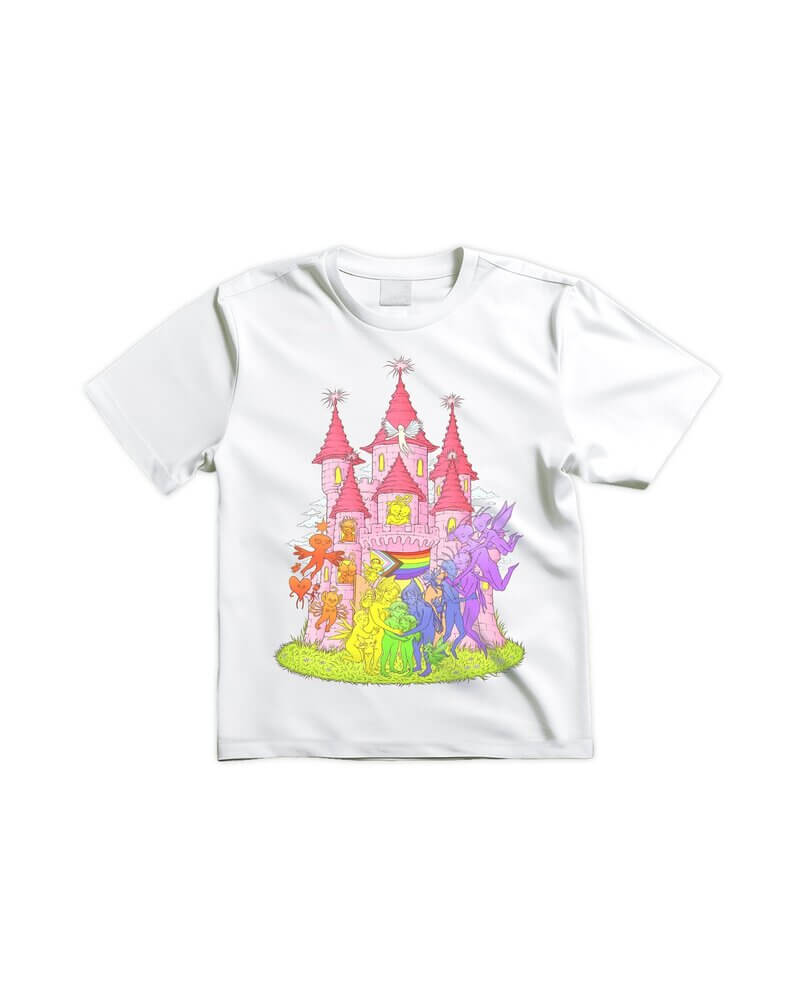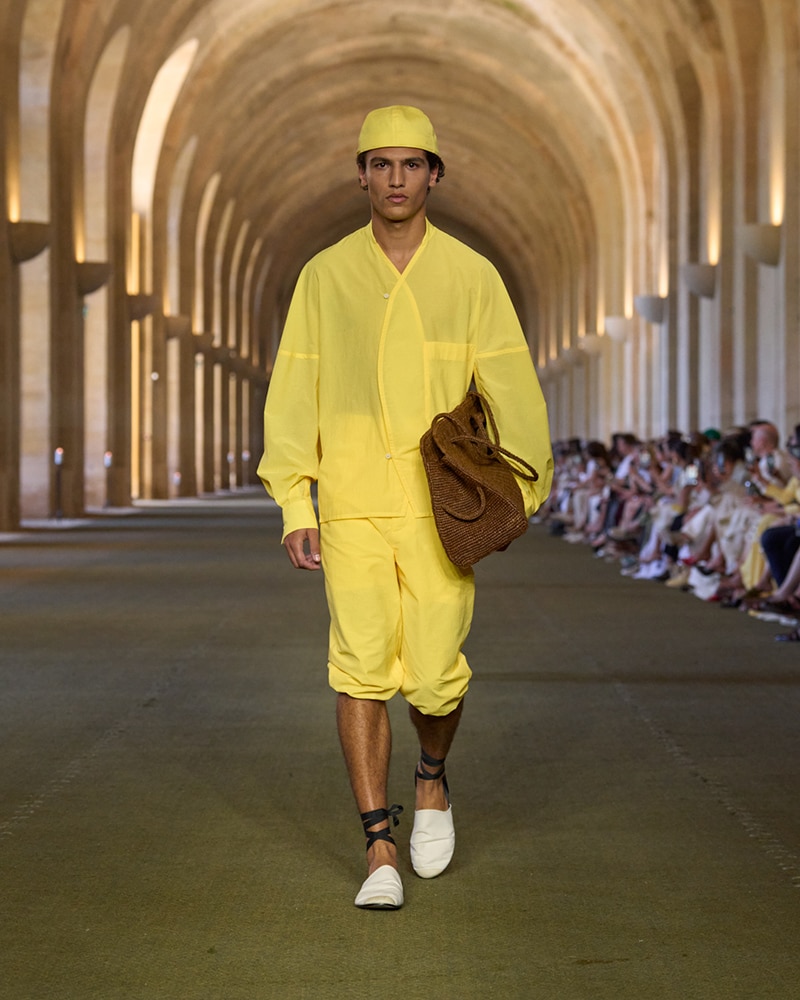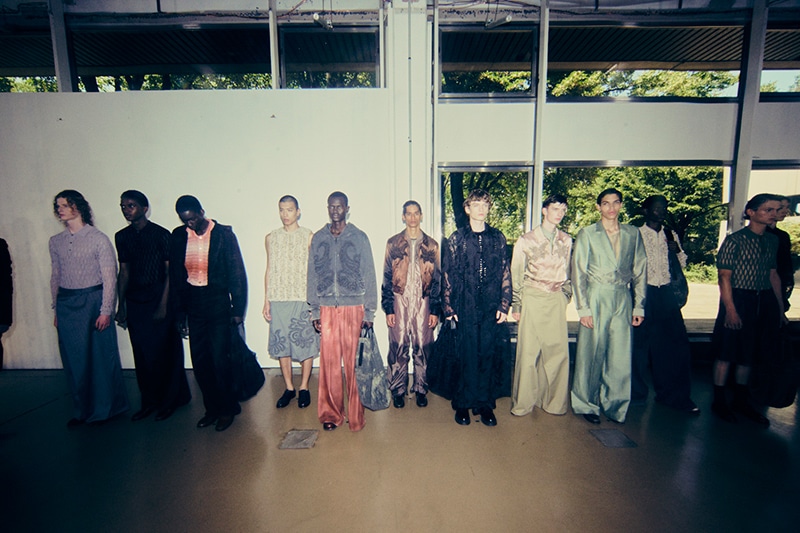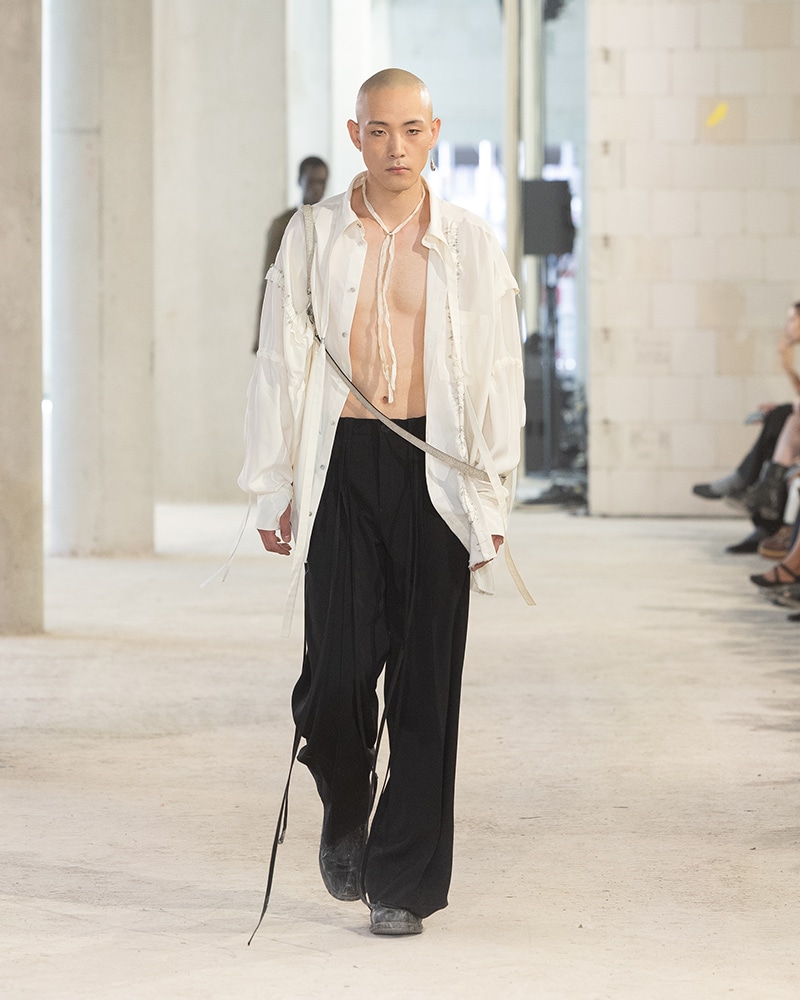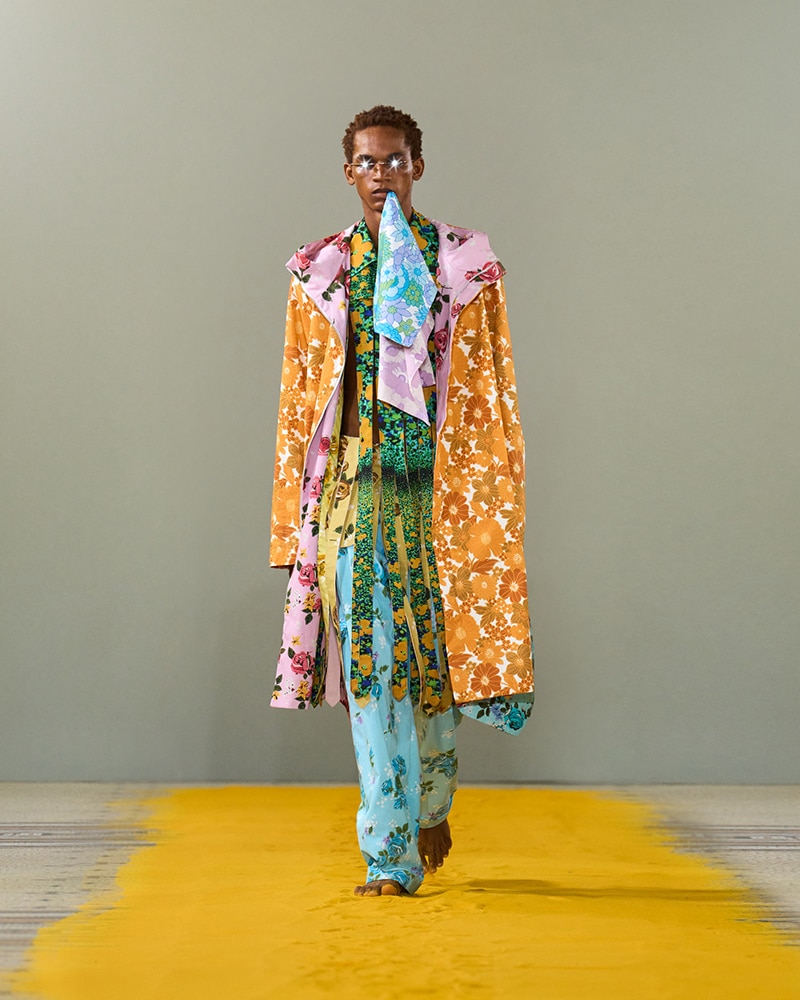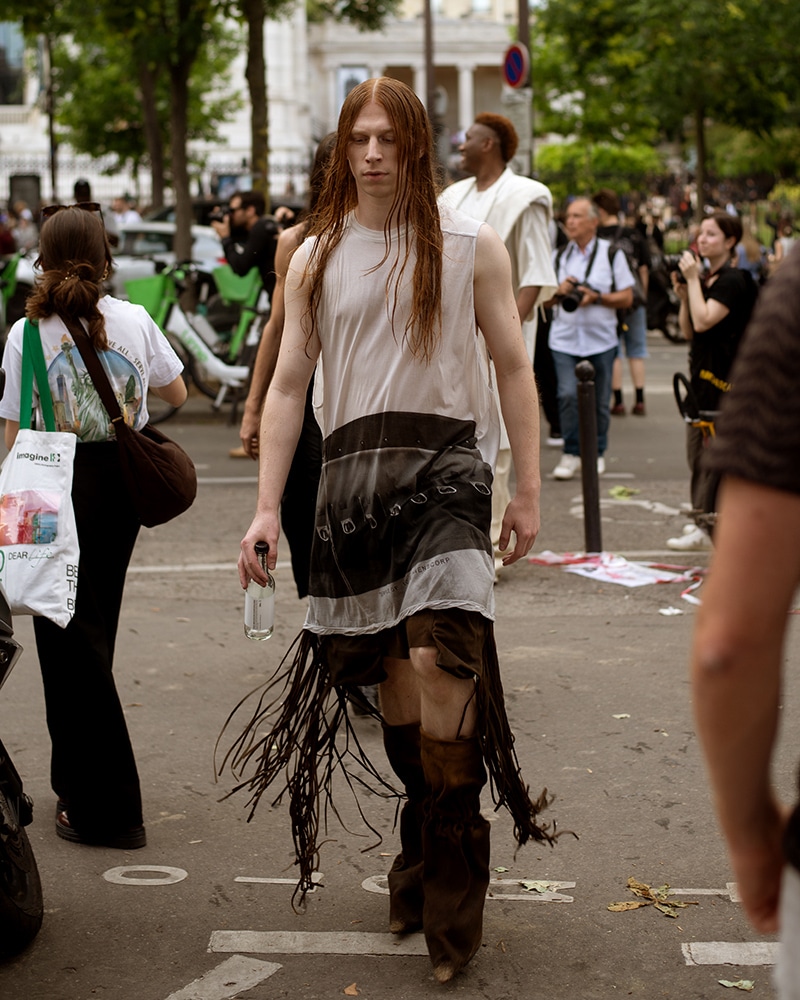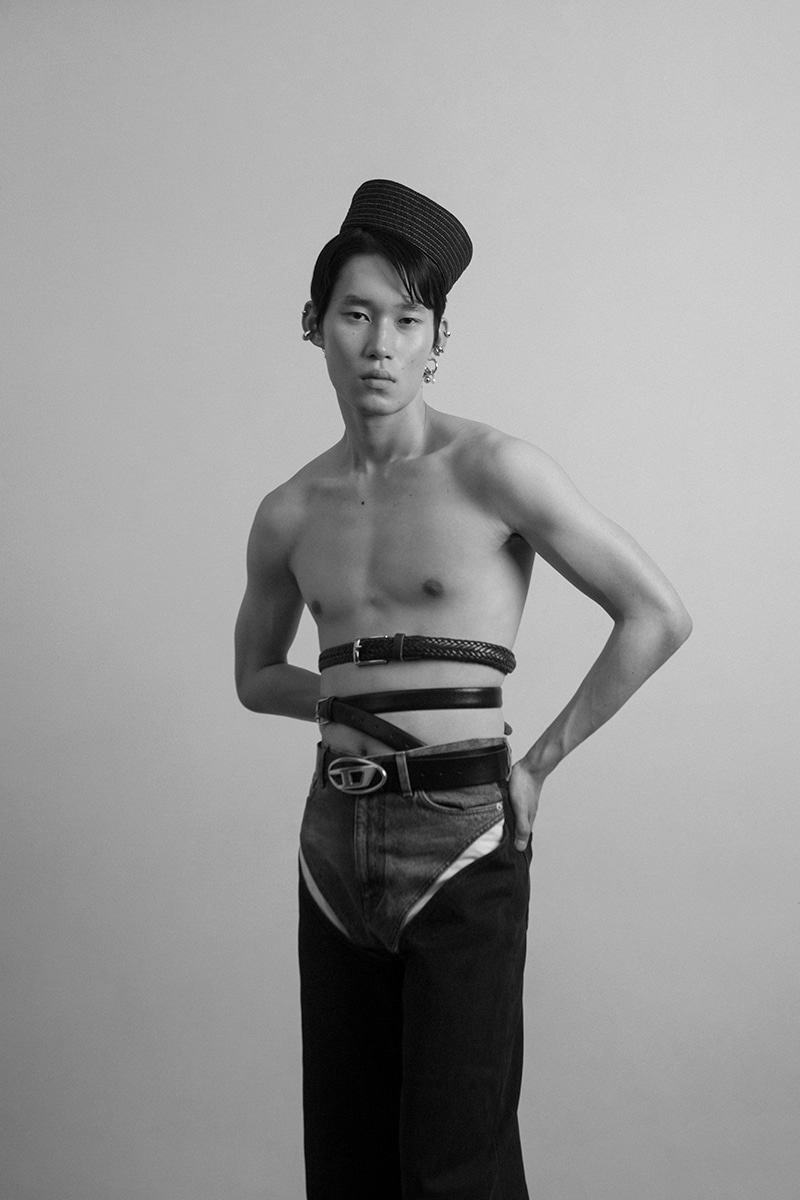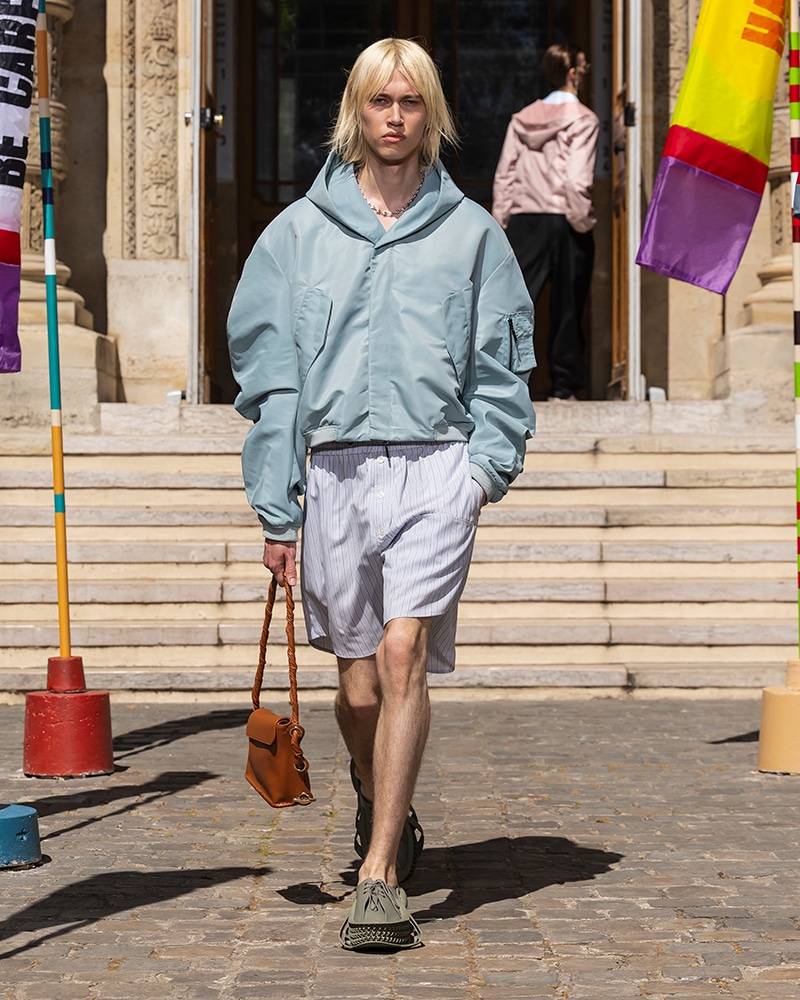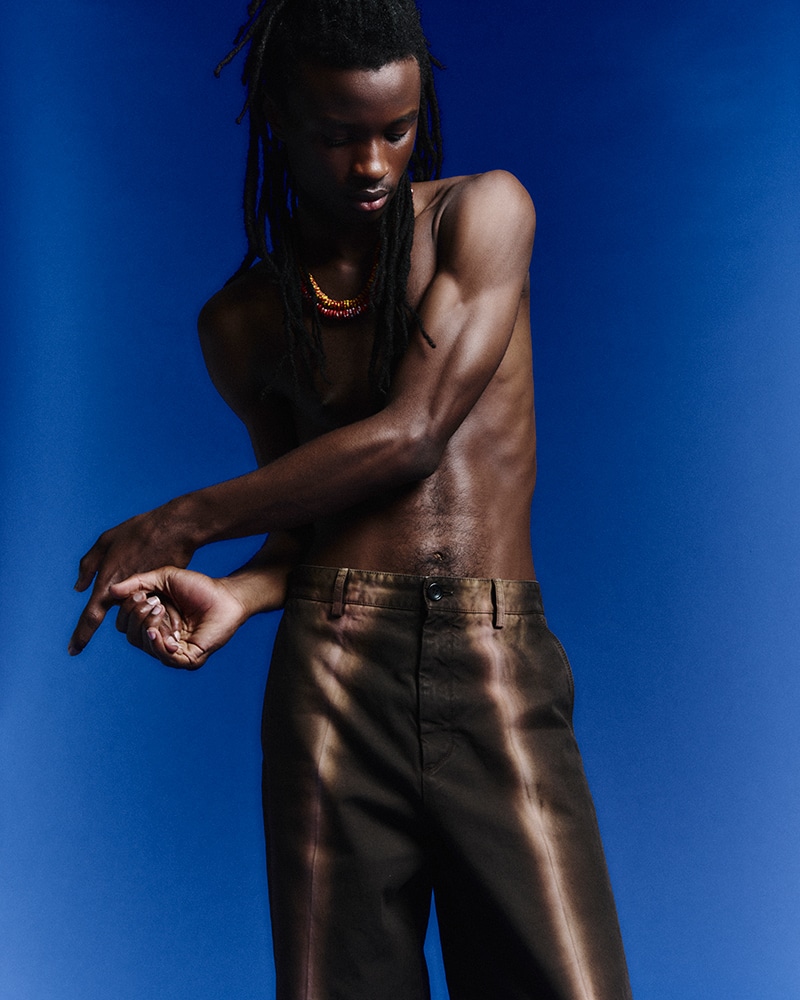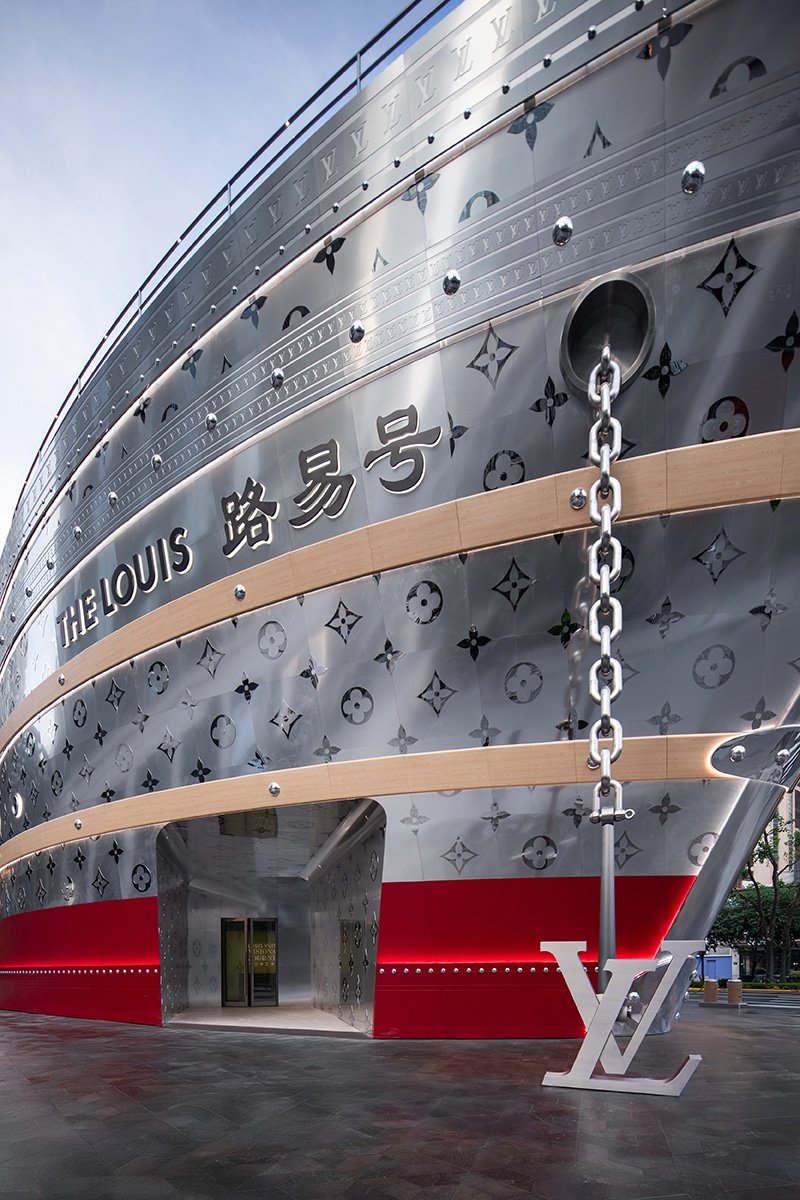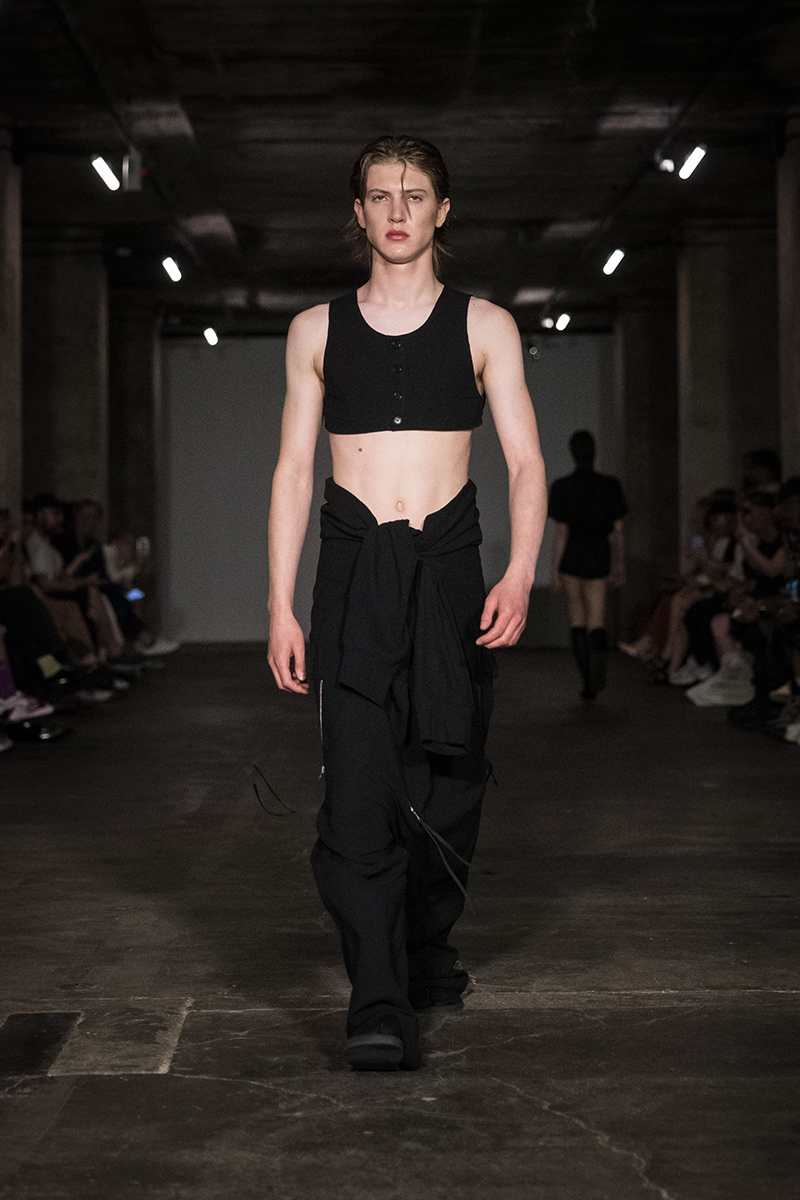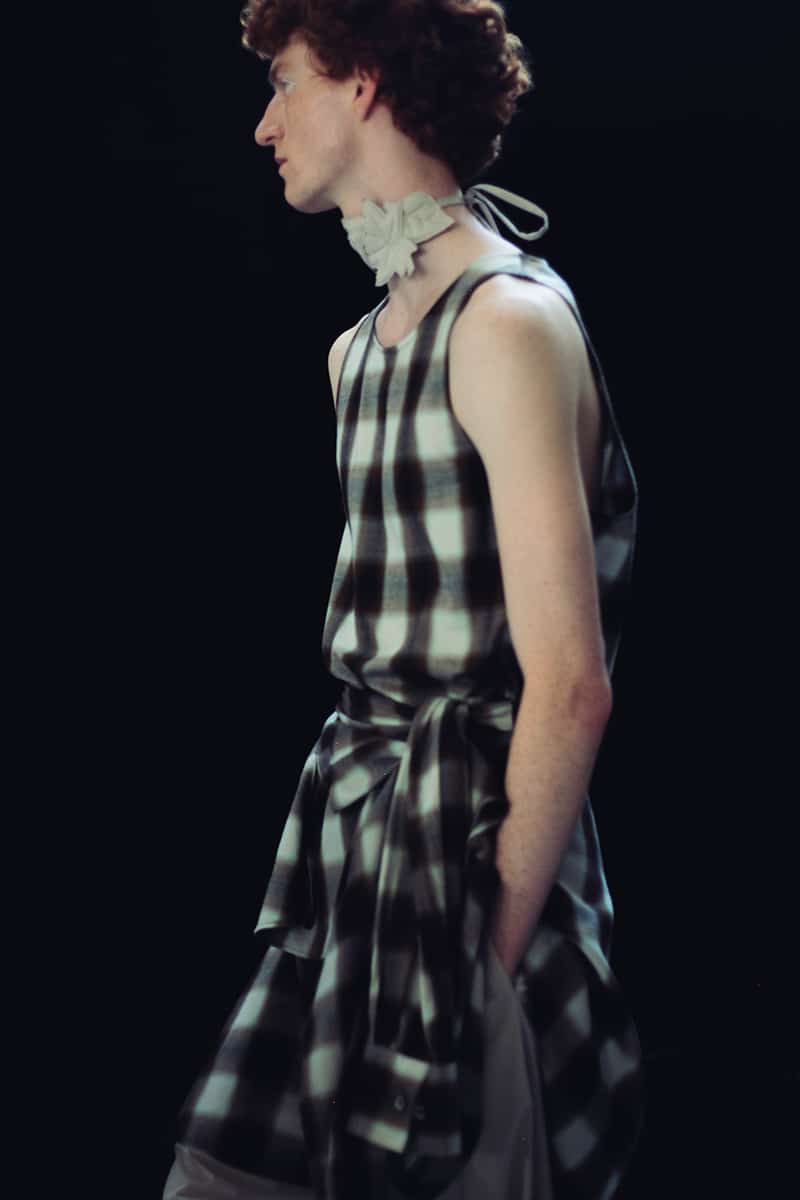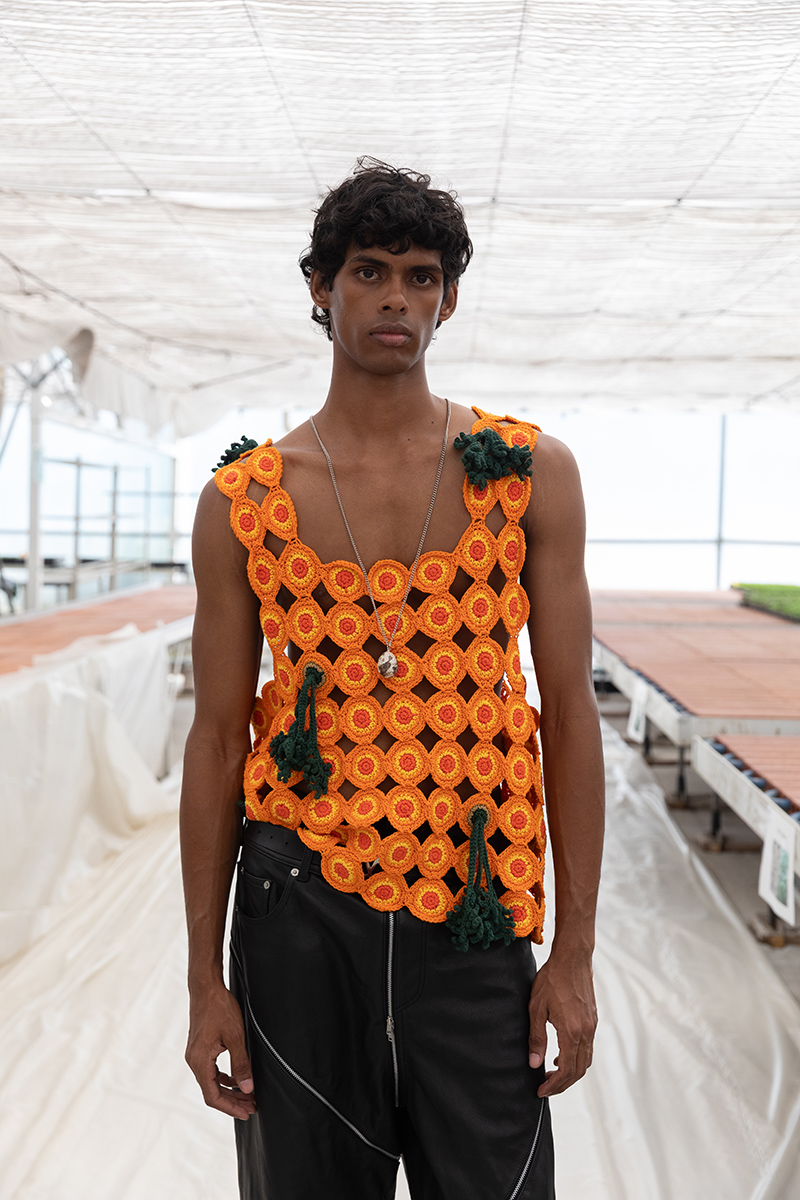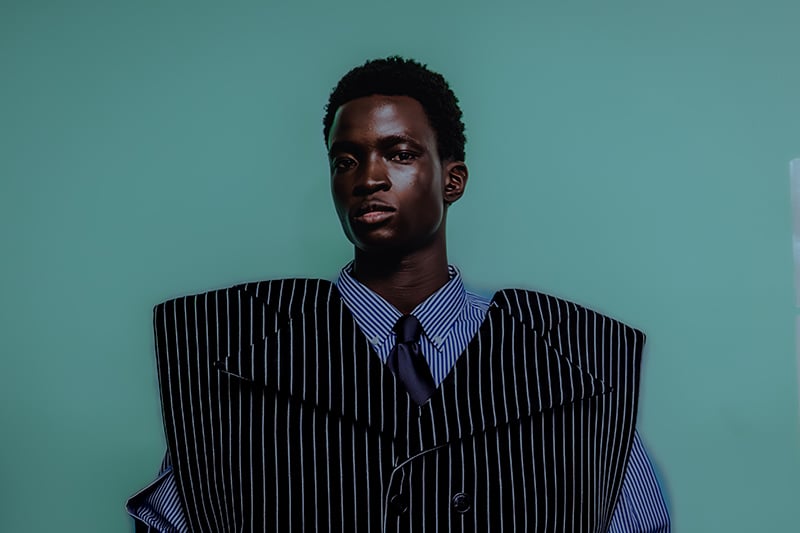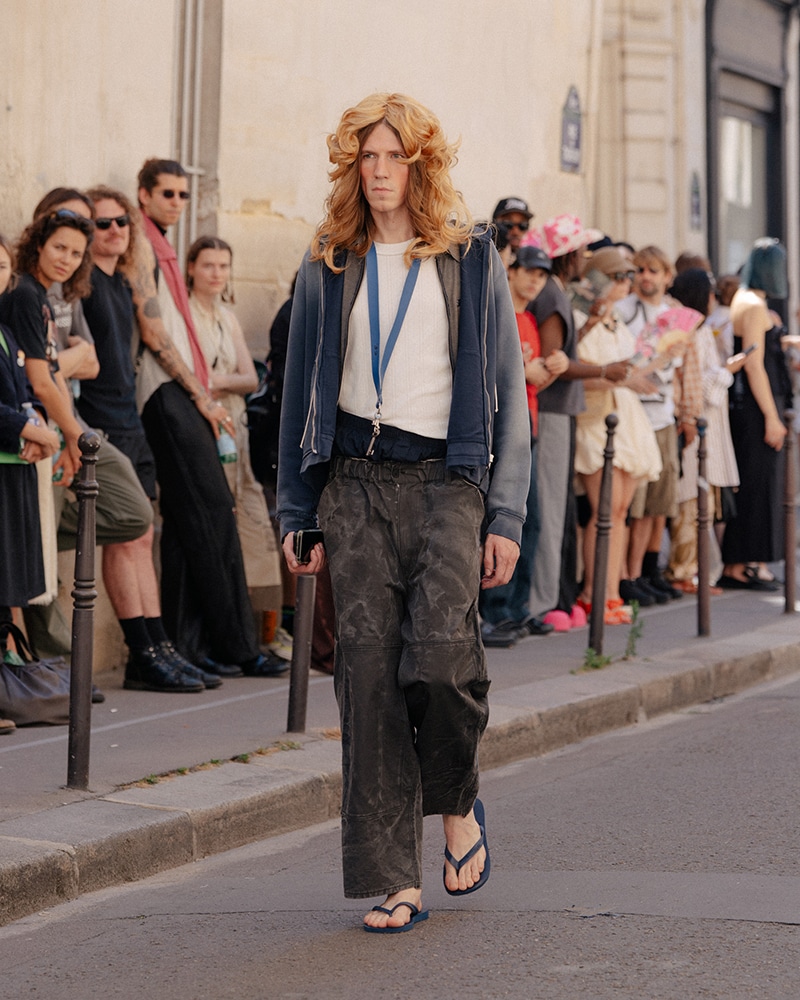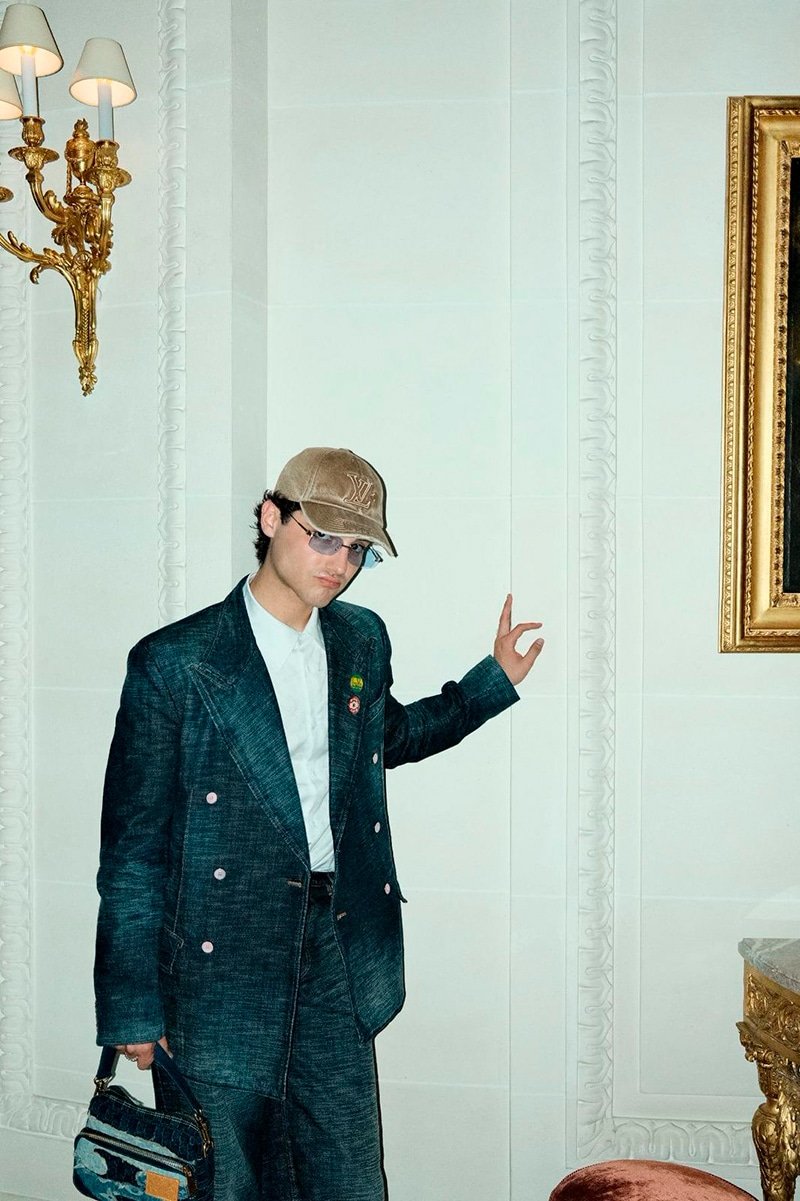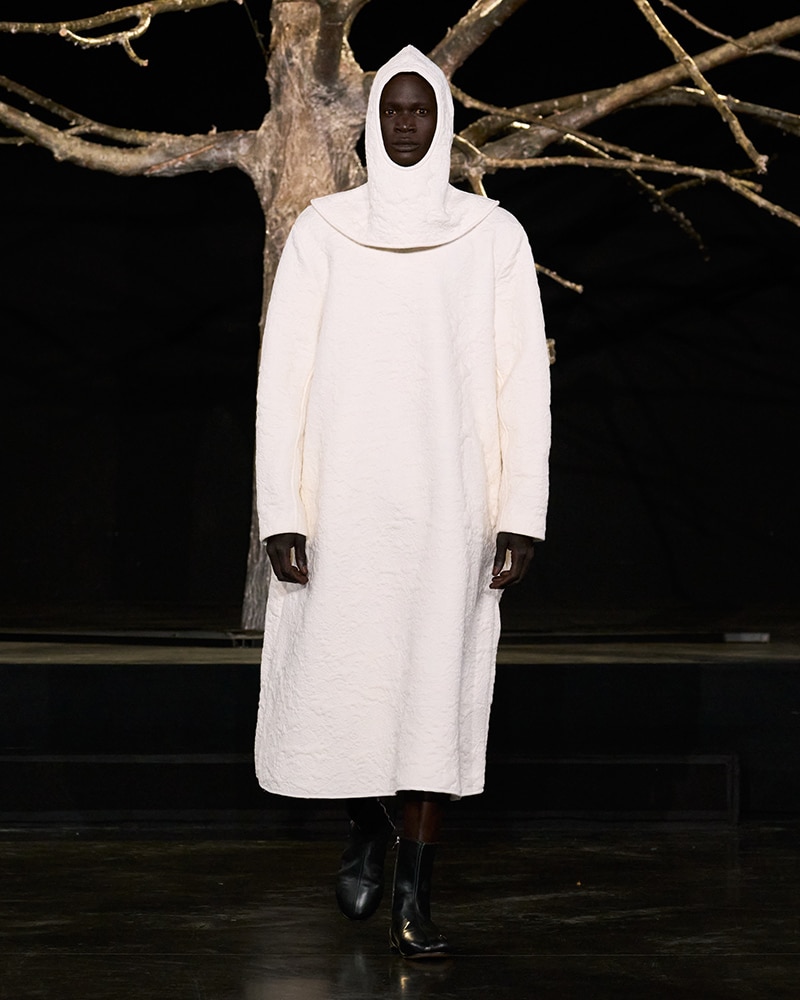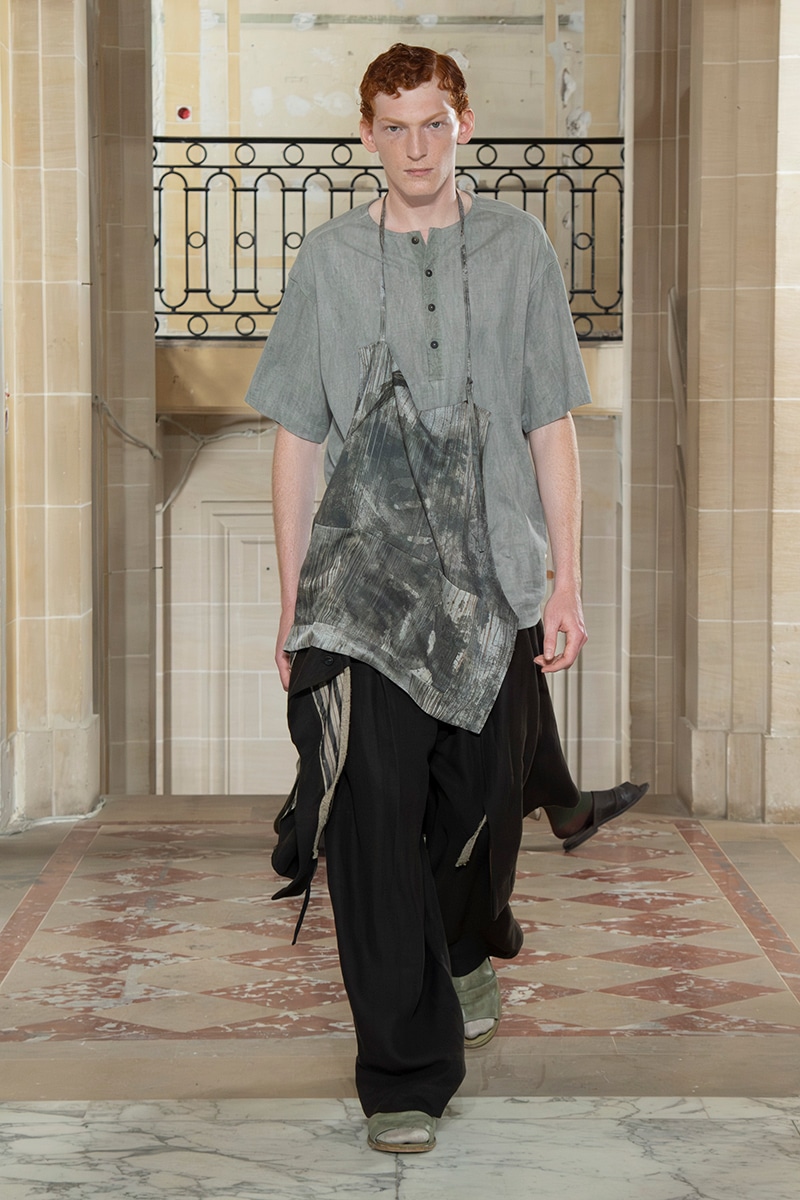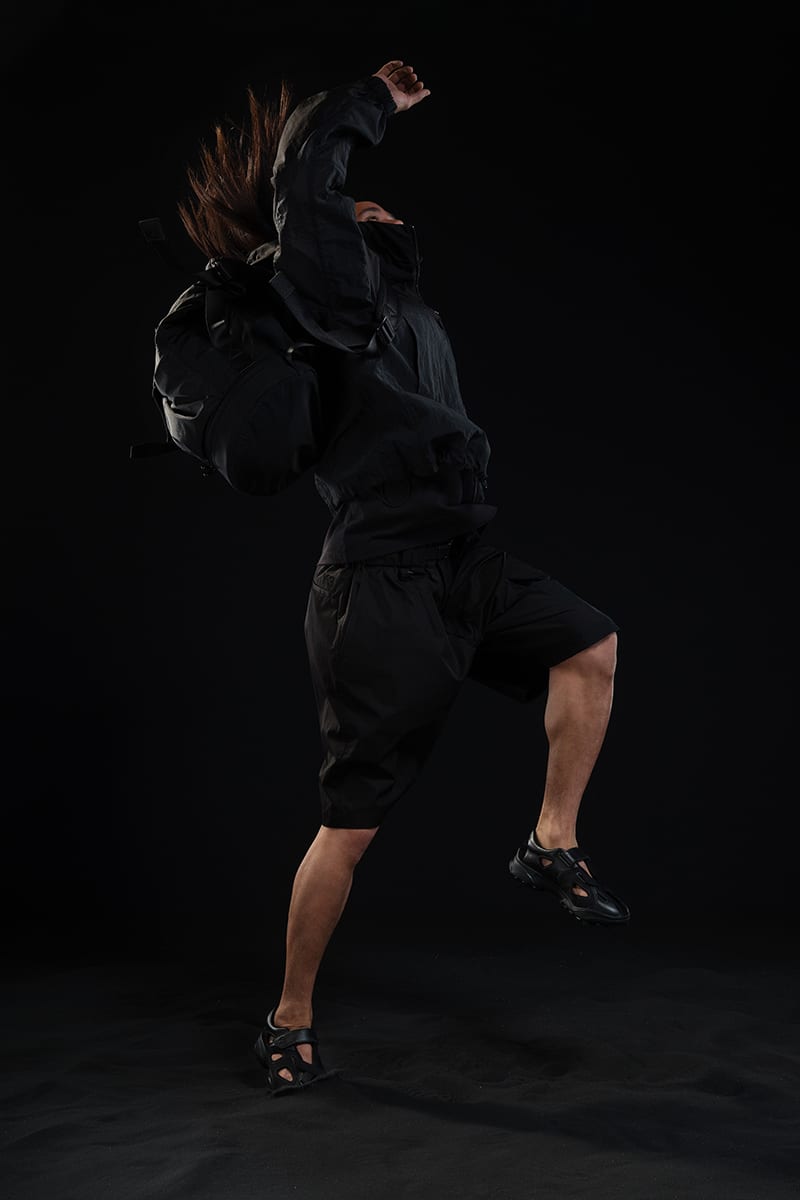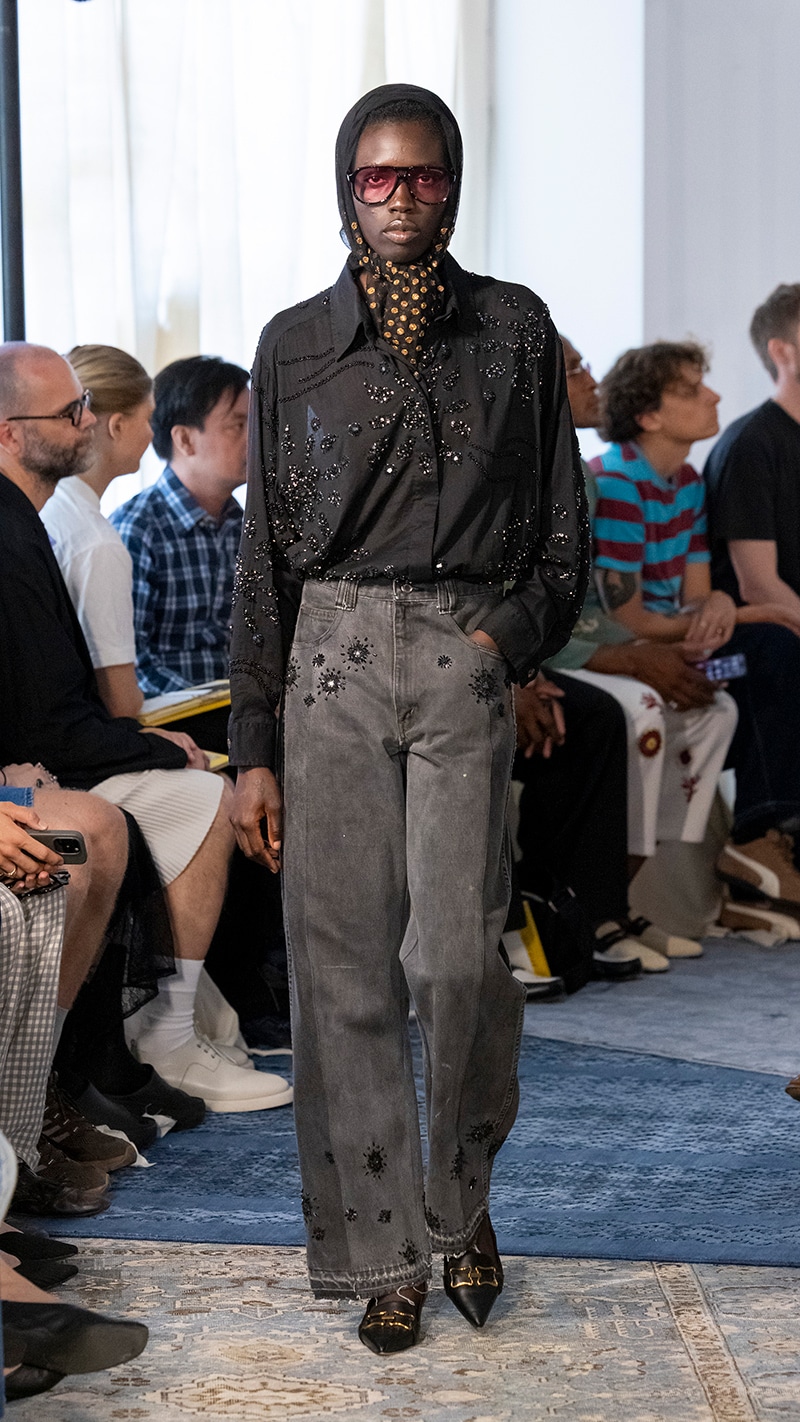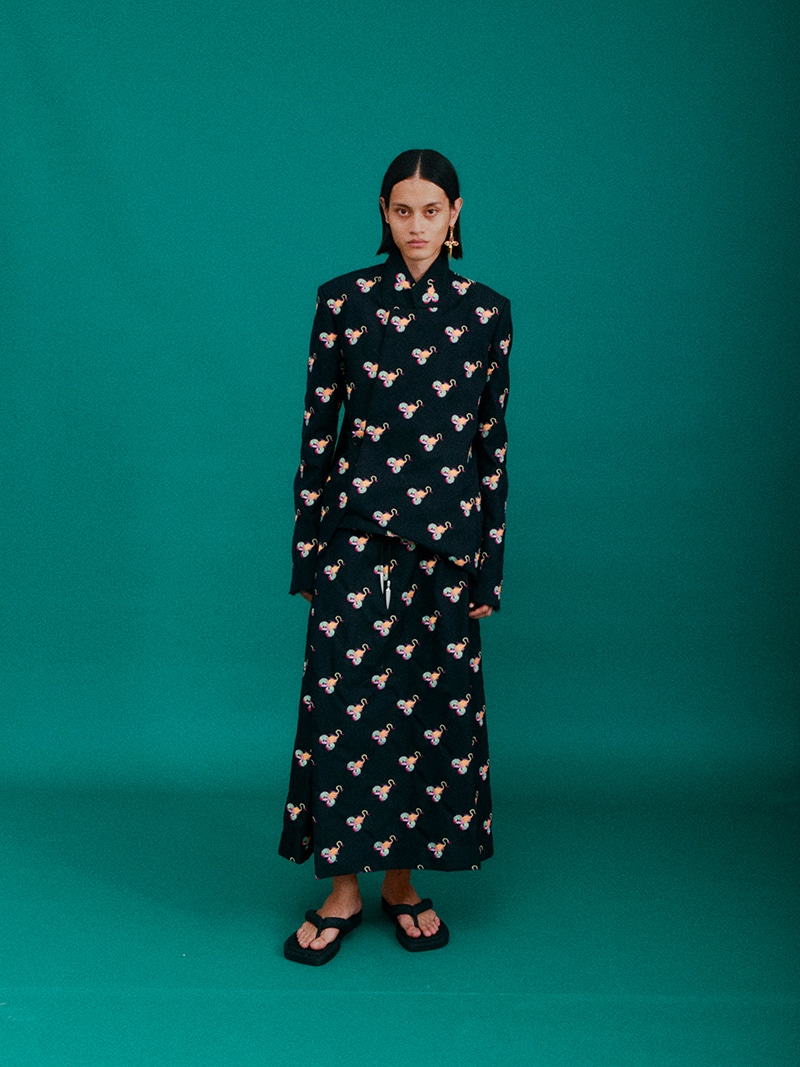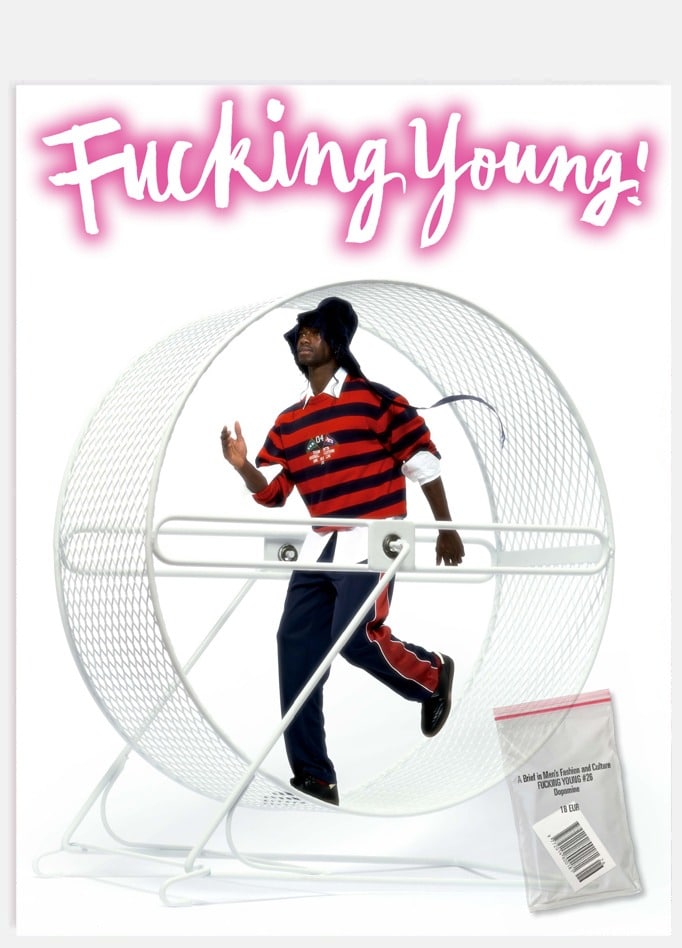As a white woman, I cannot speak of the injustices that black people face. I know that I’m complicit in armchair activism and I’ve witnessed profiling for papers on my street during the Covid19 lockdown. I also know that I am part of a wider industry that profited from slavery not only in American history but in modern slavery today. An industry that has found success from exploit. Fashion uses people to buy products and sell them. If things are going to change in the industry, first we need to talk less and listen more. The industry is also made up of some of the most creative people. We should get creative to find solutions not only in the environmental factor and supply chain but the human factor, even if it means having uncomfortable conversations from race to sexuality.
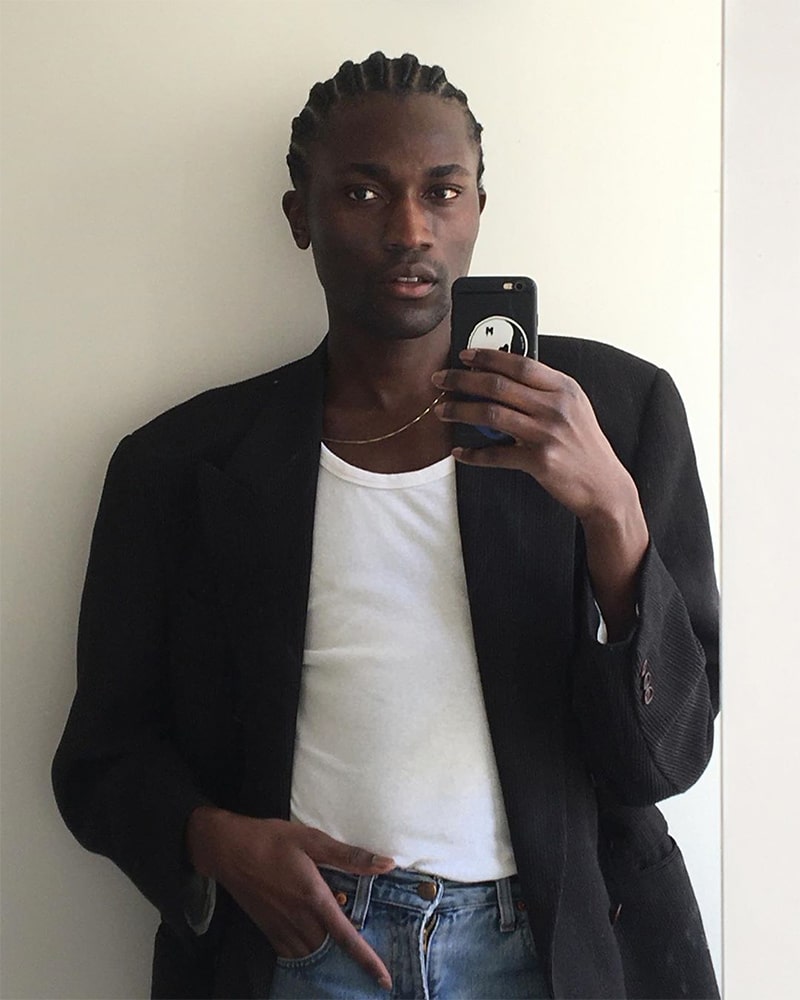
@lennyoffduty
Name: Léonard “Lenny” Diga
Job: Stylist, Artist
Age: 27
City: Paris
Hometown: Brooklyn, New York
You are currently in Paris and seeing the protest from abroad, what is the atmosphere that people are sharing with you from back in the states, and what are your current emotions?
Honestly, watching from Paris, I feel powerless from everything that is happening back in the US and as a black American male, I feel all of those same emotions that my friends and every black person back home feels about the blatant RACISM in the US. There has been a lot of communication between me and my friends, especially on social media –sharing information, frustrations, and stories back and forth. It seems like everyone has had enough! We’ve had enough for a very long time but this time it’s us yelling from the top of our lungs, no politeness. Racism and whiteness is and has always been a disease!
How systematic would you describe the racism by people of authority and have you had any personal experiences with the police?
Fact of the matter is the Police is a system, it’s not a service, they’re not safety patrol, they are a GANG! As is the government, it’s a business. The US was built on principles of racism, genocide, and slavery. Our “Forefathers” literally forged this country with themselves (white men) in mind. Everything that has come out it since has been a part of a system.
There are so many things that have kept black people in harm’s way, even after the abolishment of slavery. No reparations, sharecropping being the only form of work, Jim Crow laws, segregation, red lining, crack epidemic, gentrification….shall I go on. This is a racist system. Black people have never been given a chance to make something for themselves and when they are met with authority, we’re seen as lesser than, and met with aggression. I’ve only had 2 or 3 interactions with the NYPD and I was a bit younger. I remember 12 years ago I used my school MetroCard on a holiday after going to an open house at what my future university, which isn’t allowed unless it is school-related. When I swiped in at 34st St with a friend, a white undercover cop stopped me and just began drilling me and asking my then 15-year-old self why I was using my MetroCard and just continued to berate me and illegally search my wallet looking for my ID which I didn’t have. He even threatened to arrest me if he found it. It was frightening if you can imagine, and I was frozen in place. It wasn’t until a nearby police officer in uniform who was black came over and saw the aggression from his peer and stepped in –he even looked a bit troubled by the interaction. I thought of ten ways that could have gone wrong on my way home just from using a MetroCard.
Having been split between the pond between New York and Paris for a few years now, what are some of the differences and similarities that you have come across?
It’s all relative if you ask me. In my opinion, being a black American coming from an environment that I’m raised to be more aware of my place in society and how others will perceive my blackness, after the honeymoon phase wore off I was able to easily identify problematic racism in Paris. I’ve actually never been followed around a grocery store in my LIFE until I moved here –and I was actually warned about that very thing.
I would say the only difference is that White people in the US are aware of racism and its existence. Perhaps not well versed, but they can acknowledge it and chose to act against it or remain blissfully ignorant and pretends like its not happening. Whereas here in Paris particularly, white people have a different relationship with racism. They see themselves as the default cause they’ve always been here and everyone else is an “other.” If you haven’t noticed white French people live in bubbles, they don’t have the most diverse friends group, they don’t talk about heavy issues, or speak on anything that doesn’t directly affect them and they’re full of microaggressions. When they tell that Paris is a post-racist society and use tokenism because they one friend who may be black or Arab, they actually believe that to be true. White people in Paris believe those things because they don’t always have to be the perpetrators of racism, they’ve given that task to those below them. Those people being black or Arabs, perhaps working as security guards for example who are usually the ones following you around or checking your receipt after watching you pay for items at store. So if you’re not directly being racist or interacting with black people, of course, you can easily believe that you’re not racist and this is a post-racial society.
People want to show that we care, don’t tolerate racism, and show solidarity. What conversation should we be having and how would you construct it?
For starters, do not burden your black friends, or anyone in proximity for the tools to end racism. This is when ya’ll got to get back to your university days and do some research. You cannot begin to discuss topics that you’re not well-versed in. There so many resources online, videos, op-eds, articles, podcasts, films, documentaries about these very topics from systemic racism, white supremacy, wealth gap, wage gap, segregation, police brutality, profiling, etc. After you’ve done your research, then you can absolutely form the conversions on your own. I’ve never had to ask a Jewish person about the holocaust or Armenians about genocide, I’ve done the research and learned about these things on my own. Why can’t others make the same effort when it pertains the plight of black people globally? But, these conversations need to be amongst your white friends, peers, partners, your family, your racist uncle or neighbor, whomever! That is the best way to show solidarity, is a change of mindset. Look around your work, why are there so few black people? Or a lack of black creatives, photographers, stylists, etc. Ask yourself that question. Sign petitions, donate to funds that particular like Black Lives Matter, ACLU, Black Visions Collective, Reclaim the Block, and these all things I found within seconds of doing a quick search on google. You can do it too! It it’s not the responsibility or burden of black people to fix a system or issue that they did not create themselves.
LISTEN! Listen to your black friends, don’t talk over them, don’t add your opinion, do not invalidate their experiences, absorb the free knowledge. Unlearn problematic behaviors. If you talk to ten white people you know about racism, white supremacy, and how you partake in it, and they talk to ten of their friends, etc, we can begin to have a dialogue and change of mindset and create awareness. Use your white privilege to speak up for your black friends, to protect them, be vigilant! Become an activist and create awareness with the tools, resources, and privileges you have. All the blueprints to dismantling this oppressive system are there, its public knowledge, it’s up to white people to use their privilege to make it happen.
Do you also apply this to your work and if so how?
Absolutely, since beginning working in the creative industry after moving to Paris, I saw the way black talent was overlooked while working at a Magazine, with another stylist, or photographer, if I was casting a presentation or even for my own shoots. I would try my best to use black models or work with black talent or promote or suggest someone to a peer or colleague, attaching myself to other black creatives to share information and create a community of sorts, but there are so few of us, I can literally count on one hand. It’s frustrating because in the white industry like fashion we have to stick together and help each other out and that’s just not common, there is this fear of scarcity that exists! I remember a presentation and literally fighting with the designer in order to cast a black model because it wasn’t looking good from my POV, and the designer was sidestepping as to why we couldn’t hire a black model, from saying it would take too long to do hair, or this piece doesn’t go with her, etc.
It’s frustrating, cause even with speaking up, you feel powerless because they get the last say. I get agency packets, and they’ll have two black girls, but every type of white or Asian girl you can think of with short hair, long, pink, bangs, piercings, etc. It’s sad! I’ve made it my mission that as I continue to change courses and thrive to continue to bring other black creatives in my orbit and help and give resources and create a mutual bond because we really are all we have and it feels lonely out here honestly.
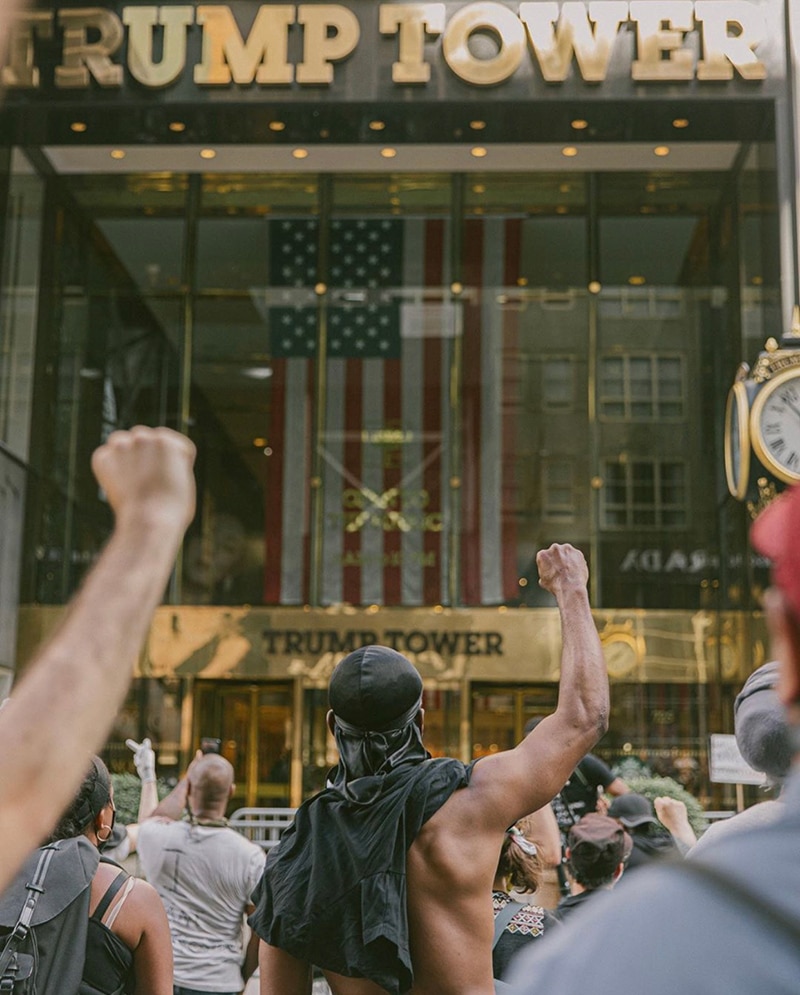
Photo by @mark.c
Since the election of Trump have things changed or have they always remained the same?
The only thing that has changed since Trump’s election victory is the display of white male privilege and embolden racism, but now just on a world stage. He’s not afraid to be radically racist, he knows no one is going to check him for it. So, he’s given racist who’ve remained hidden the go-ahead to come out of the shadows. White supremacy has always been present in the US, but it was taboo and not on brand after the civil rights era, so everything was covert. White supremacists have only gotten more organized in the last few years during the trump era.
What tools of empowerment have you come across?
I feel empowered whenever I am listening to other black people share their stories, or speaking up about current issues and topics because it makes you feel a bit less alone in this experience, and blackness is an experience. I’ve also found empowerment in myself through expanding my voice and calling BS out, and not feeling like I need to be polite or avoid making white people uncomfortable. I’m over it honestly, and I feel so powerful when I’m able to speak on these things in the whitest of spaces or call it out.
As part of the creative community, what can we do from abroad in regard to the current situation?
Hire black creatives, promote black creators, create spaces in your networks and your creative vehicles for black creators to have a voice, have agency, to allow black people to take up space, to have a vision of their own that isn’t whitewashed. We are just as present as anyone else. I think especially in the creative world, black creators are treated like we are only useful when convenient, or when someone needs something with “flavor”, “afro”, or “attitude”, then we’re discarded. We have so much to share, create, display. If you cannot find any black creatives in your immediate networks, reach out to them via social media and they will connect you with so many of us, cause we’re out there, but no one is looking.
We know the creative community is very white, partly because most creatives have resources to continue to freely create, have an atelier, pay their rent, turn down jobs, or take free jobs with little pay. Most black artists cannot do the same and we depend on those paid jobs, or moonlight in order to supplement our living situations, and it gets in the way of our creativity –It’s gotten in the way of mine. Why not create resources for us, share your resources, even if it letting someone get a corner in your office. It’s been for me when I first arrived in Paris. A friend had a free desk in his office near Rue Cambon, and for a long time let me work out of that space, and use it for my own shoots. It cost him nothing, and he was happy to do it, but for me, it meant a lot.
During the #metoo movement, it looked as if fashion was trying to profit off of feminism. It’s a strange industry where fast fashion is killing the environment and luxury is catering to the one percent who benefit from wage theft. How do you reconcile working with such an industry and do you think it needs to be political?
The #metoo movement was started by Tarana Burke a black woman, but has been co-opted by white women because it was more marketable. It took a white woman to bring awareness that this movement was made by a black woman for black women. For a long time, Feminism has been very white. It’s not intersectional, never has been. So, to see the fashion industry that already lacks a moral code profit off of the Me Too movement, wasn’t anything new. We work alongside people who are racist, sexual predators, bigots, misogynists, etc and no one bats an eye because they don’t want to disrupt their place in social circles in fashion. Luxury brands underpaying their workers, or contracted workers, appropriating culture when convenient, playing black music in studios during photoshoots, or in their shows.
The industry is run by privileged white people, in particular white men, so what results do you expect to get? Me personally, I’ve only begun to step away slowly from the industry in the last year for these very things. I’ve found myself working with clients or on a shoot and asking myself “why am I here?” I was getting older and smarter and feeling like I have no place alongside these people nor do I want or feel like breaking bread with them either. They don’t have my best interest in mind. If anything, it motivated me to start creating things for myself and to stop trying to get the attention or rub shoulders with these people in this industry who are never going to see me as their equal and don’t want to. I think the change in the industry needs to be political, at the end of the day, it’s a business and a business needs to reflect society and how it’s moving forward or it will remain stagnant and currently, I think fashion is VERY stagnant and uninspiring because it’s someone trying to co-opt culture or hope onto a movement when it’s popular. How is printing “We should all be feminist” on a T-shirt that costs 10 euros to make and turn around and sell it for 300 euros and also have a team of all white people – its tone-deaf, performative and opportunistic.
Finally, many of our plans for 2020 have been derailed from Covid19 to the current protests. What are you most hopeful for and looking forward to in the future?
Covid-19 has been able to unmask the flaws in our society, in every faction. I hope that this pandemic has given people clarity that racism and white supremacy never sleep, even during a pandemic. I’m hopeful that we can call out the flaws in our system such as unemployment, voter suppression, healthcare, amongst many other things. People have been able to see that this affects everyone, not just a few. It has affected black people more so than ever, but regardless its an issue that needs to change now.
I’m looking forward to progress in all of those areas, conversations about access to free healthcare, government assistance, higher wages, better protection for renters, dismantling white supremacy and defunding police and find an alternative to policing and rather give the responsibility to communities to create patrols of their own that are directly connected with the community. Normalizing having these pressing conversations about race and inequality, misogyny, white supremacy, then begin planning ways to dismantle them. Holding our peers, co-workers, families, ourselves accountable, looking out for each other regardless of race. Let’ start there!
Here is a website with every resource such as links to petition and to donate. https://www.blacklivesmatterbeanally.com/
***
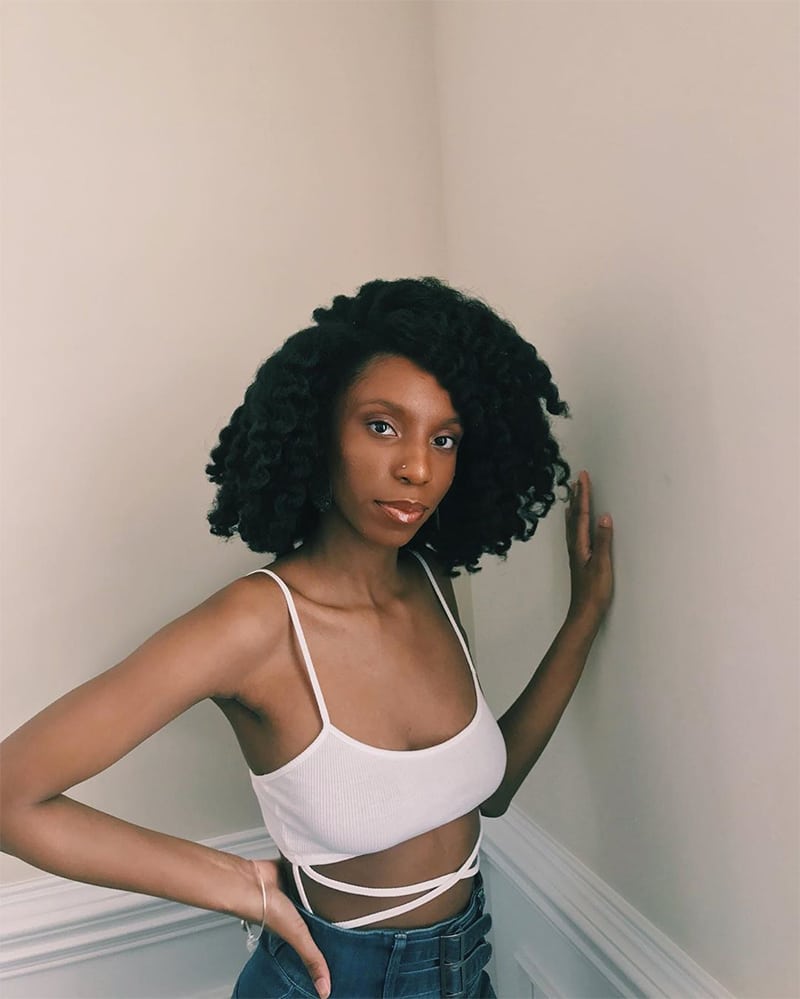
@theonlykylah
Name: Kylah Carter
Job: Fashion Student @theonlykylah
Age: 21
City: Charlotte, North Carolina
First of all, please tell us about growing up in Charlotte. Did you find your experience to be similar or different from friends in other States and cities? What would you say was the most different and what was the most universal?
Growing up in Charlotte has been a fairly positive experience and I attribute most of that to the community I built outside of school. The city has changed a lot over the past years in terms of gentrification. When I entered high school, the area around the school was home for lower-income communities and lots of black and brown students. By the time I left high school, they tore down the complex and built a new, more expensive apartments, a shopping center, and a McDonalds. The same is happening all over the city. Affluent, white people buy property in an area, build up apartments, restaurants, and stores, raise rent and displace hundreds of Black people that were already there. I think experiences are vastly different in other cities and also other communities. I hold a certain privilege being able to live in a suburban area but Black people that live in lower-income areas are often policed more and face tougher issues ranging from police violence to poor road construction. Also, being in the South is a historically different experience because of the conservatism and deeply engrained racism presented here. But there is no doubt that while the North and West are viewed as “progressive”, it isn’t as accurate as people think.
Last summer you studied fashion at the Paris American Academy. As an African American, did you notice any differences in your experience abroad that perhaps you didn’t expect?
I think being in Paris was different because of 1) the way people interacted and 2) the lower police presence. I think relations between people of different races were more integrated, whereas, in the US, this isn’t as common. More groups are more comfortable around each other which in turn creates this heterogeneous society. But with that comfortability, comes the mixing of cultures and I think that people don’t have clear boundaries set as we do in the US. As a Black American, if you say the n-word to me, even in jest, it is absolutely not okay. I think people outside of the US are so used to everybody being a part of everything and so they don’t understand why something of that magnitude isn’t “cool”. I think the influence of Black American culture is something that blurs the lines as well. The same boundaries aren’t upheld which can be a mix of miseducation and ignorance and it is up to people to take the initiative and educate themselves.
Can you please describe to us the protest atmosphere in Charlotte and what is constructive and non-constructive?
The protest atmosphere in Charlotte has been overwhelmingly peaceful and positive. Every experience that I have seen and heard has noted that the police start much of the violence, throwing tear gas, trapping people in spaces, throwing smoke bombs, and shooting people with rubber bullets. I know this isn’t shown on the news, but the reality is that oftentimes, the police are agitating already peaceful protests. I know some things have been looted and broken into, which is non-constructive, but also, a lot of that damage is done by agitators and not the peaceful protesters. I think it is important to understand the roles people play in reality and how the media portrays what’s going on and it is often two different experiences.
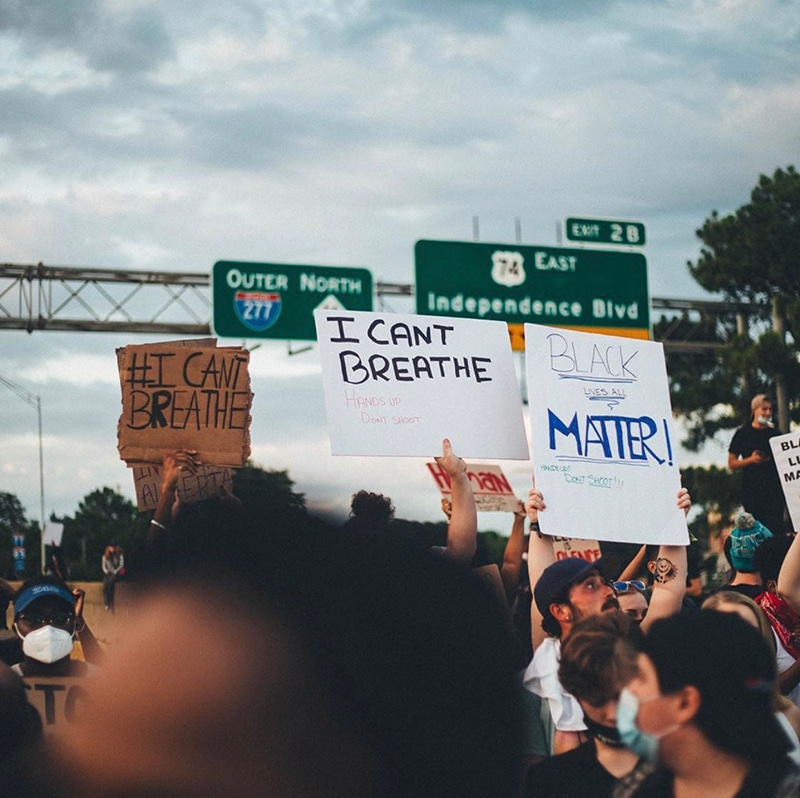
Photo by @jodamann
People want to show that we care, don’t tolerate racism, and show solidarity. What conversation should we be having and how would you construct it especially in the world of social media?
I think first, education is key. Before you speak on something you don’t really know anything about, you have to research. After that, make sure you’re speaking to your friends and colleagues about what you’ve learned. I know it is sometimes difficult for people outside of the US to understand the system within the US but posting on social media or speaking about topics without understanding is disingenuous. There are many resources on social media and so many people are posting about resources so look for that and share those links and resources. It is important and helpful to use your platform.
Is this something that can be applied in fashion an industry whose goal is to sell merchandise?
There’s a saying that “fashion is inherently political” and that is the truth. From way back when, clothing has always been a symbol of status, political position, or even personality. Because that is the case, the fashion industry needs to speak up against injustice, especially since a lot of brands thrive off of Black people and culture. Racial issues are just as important as women’s issues and sustainability so it should be treated as such. You can sell merchandise while still caring about human rights but that is the issue —- many do not care at all.
Do you feel that celebrity social media support is redundant, or they should be doing more?
I think oftentimes, celebrities speak from a place of privilege and are disconnected from the reality of our everyday community so I believe they should be using their platforms to share resources and donate money instead of trying to comment on things they know nothing about. I think now we’re starting to see how disconnected from reality many celebrities are so it’s both disappointing and eye-opening.
During the #metoo movement, it looked as if fashion was trying to profit off of feminism. It’s a strange industry where fast fashion is killing the environment and luxury is catering to the one percent who benefit from wage theft. How do you reconcile as a fashion student with such an industry and do you think it needs to be political?
It is difficult because it is so true. It is up to the fashion industry as a whole, especially luxury brands to set the standard and stand up for issues they have continuously contributed to such a wage theft, human rights violations, increased carbon footprints, and more. Because fashion is inherently political, it must be addressed as such and not just for profit but because there’s an opportunity to be a trailblazer and create change.
What tools of empowerment have you come across?
Supporting Black businesses is a huge economic empowerment method and one of the best ones. The racial wealth gap is too wide and Black people have so much buying power so by putting our money back into our community and not giving to corporations, we will help build wealth.
As part of the creative community, what can we do from abroad in regard to the current situation?
I have seen protests in Ghana, New Zealand, France, the UK, and all over and it’s very encouraging. Ultimately, I believe that raising awareness, educating yourself, and checking your own privilege in your own society is the most important. If you don’t understand the complex, bigger issue then it’s easy to place blame instead of realizing how you participate and operate in the system as well. Use your voice in private and in public and use it to educate where you can. Lastly, there are so many books and documentaries that one can watch the educate themselves. A few on Netflix are 13th, When They See Us and Explained: The Racial Wealth Gap.
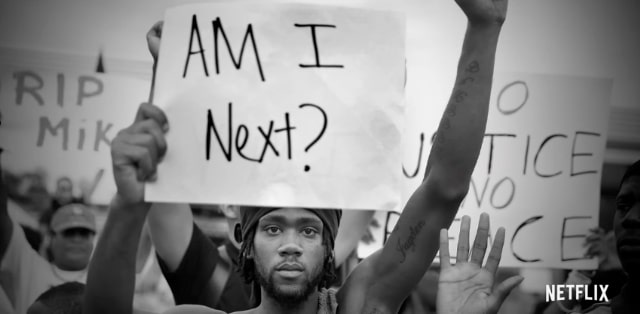
13th available on Netflix
When speaking to Europeans, many believe that if guns were banned, then the police would have no reason to suspect someone was armed and use excessive force. Sounds pretty easy, but as Americans, we know it is complex. Are there any simple solutions that we should be aiming for?
There’s no simple solution because it isn’t about guns, it’s about race. It is deeply ingrained into the way everything operates here in the US, and even in some countries in Europe. The simplest solution is listening, learning, and advocating in all spaces — from the workplace to public settings, to the dinner table.
Finally, many of our plans for 2020 have been derailed from Covid19 to the current protests, and I can’t even imagine all of the fashion students graduating into this mess. What are you most hopeful for and looking forward to in the future?
I am most hopeful to see how the world will change. It is obvious that corporations, brands, and people need to adapt to a new normal, so I want to see people being cleaner, more cautious, and more caring. As for me, I will be graduating in August, so I am extremely excited to start my career in fashion, dive deep into my passions, and make a change at all levels.
